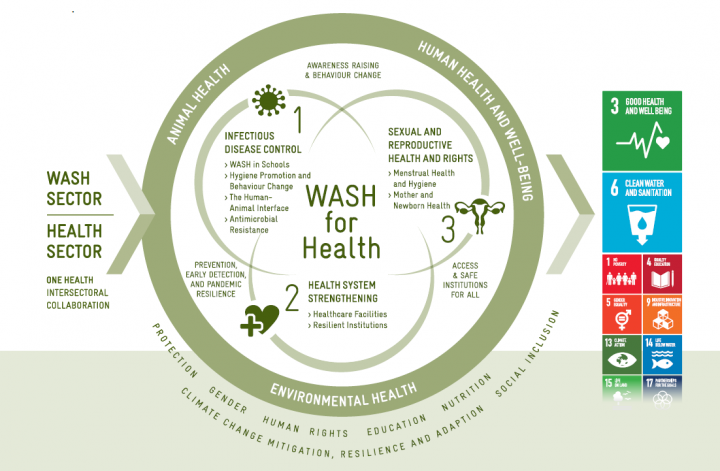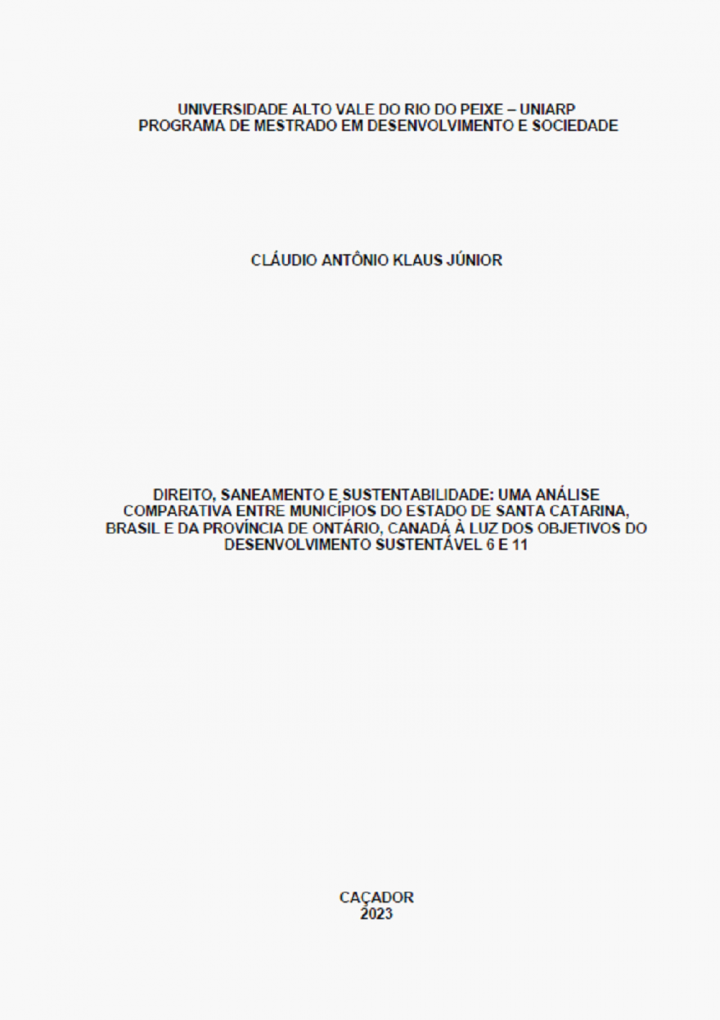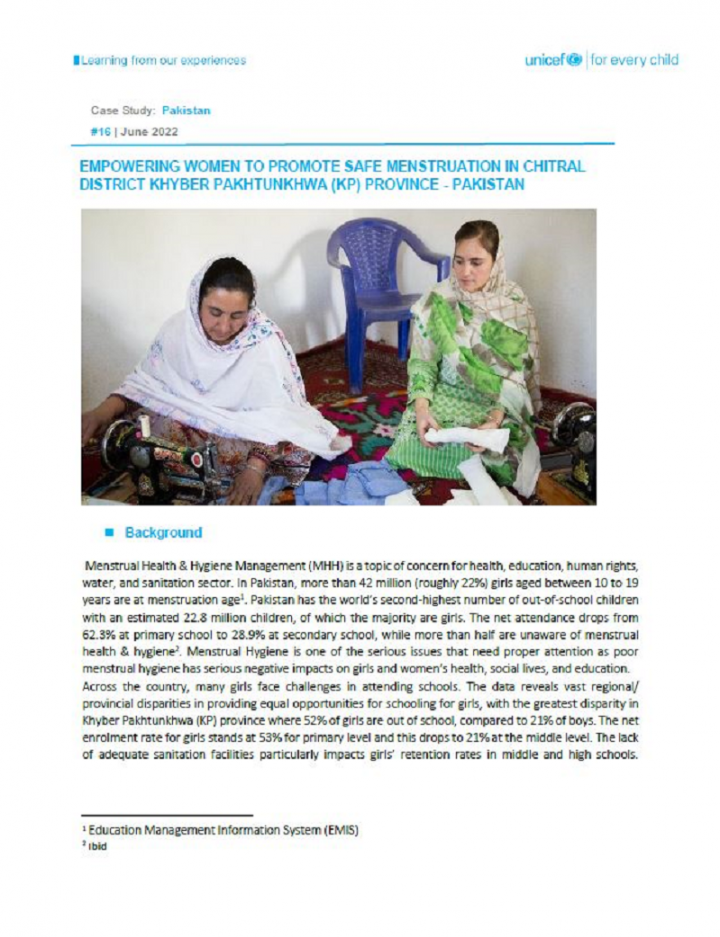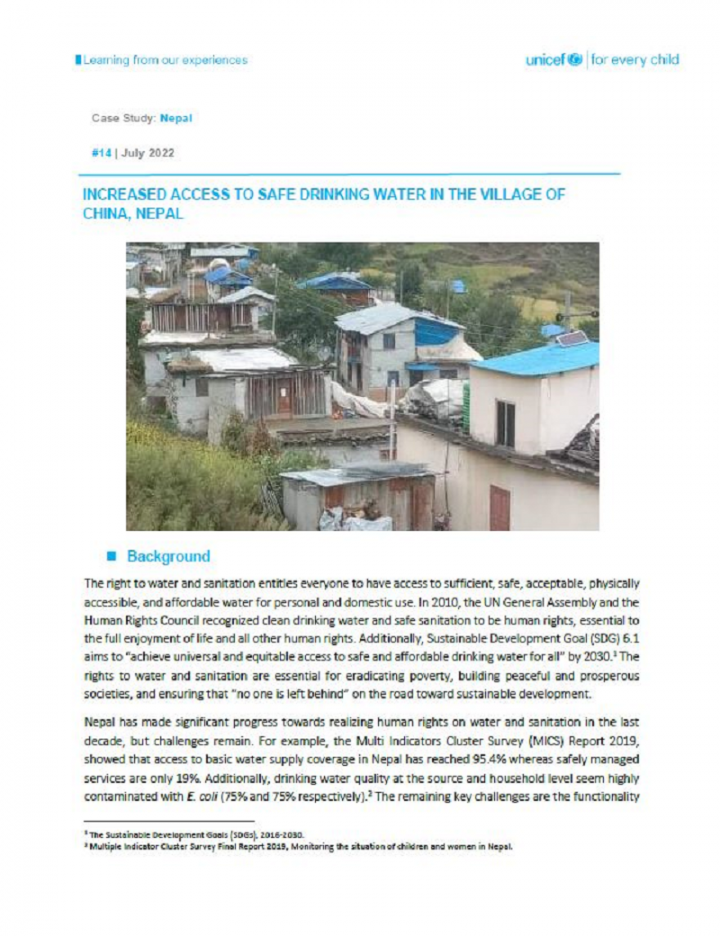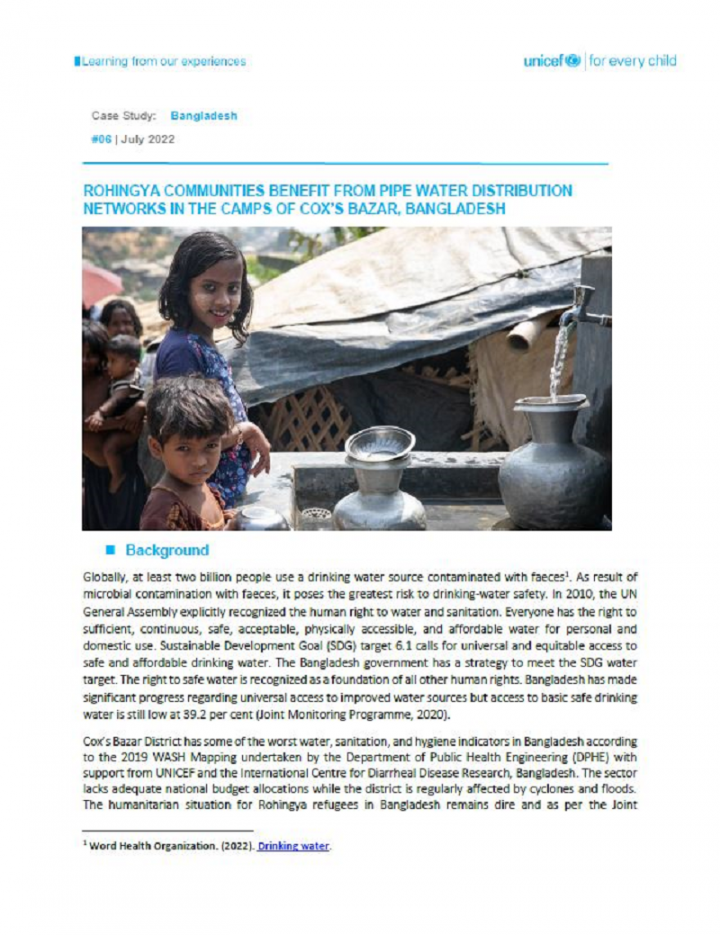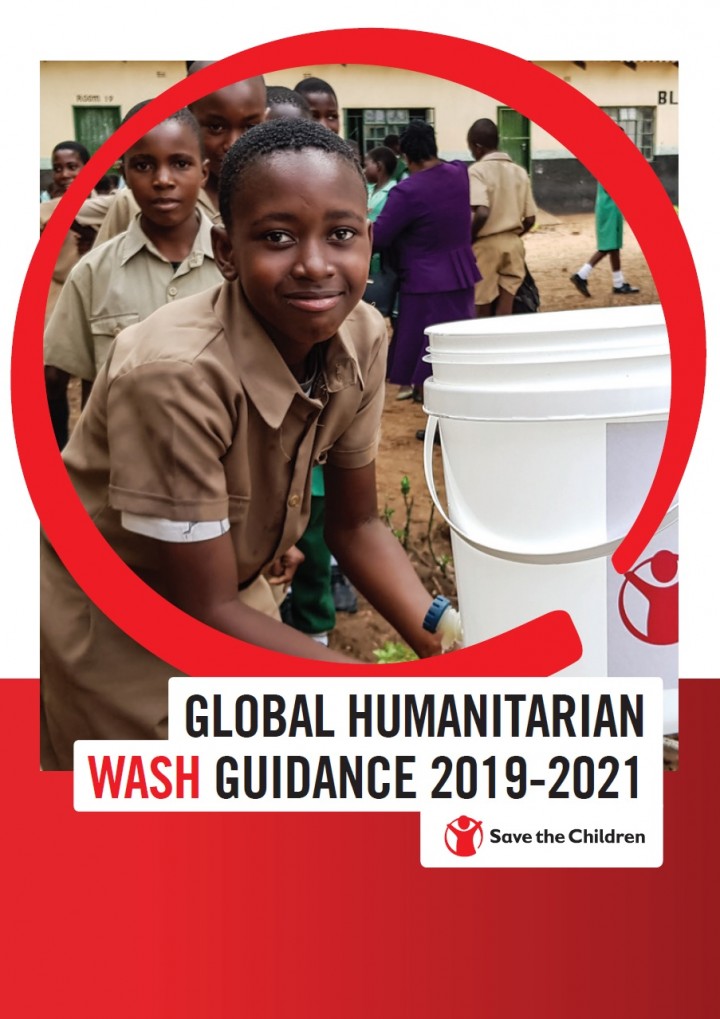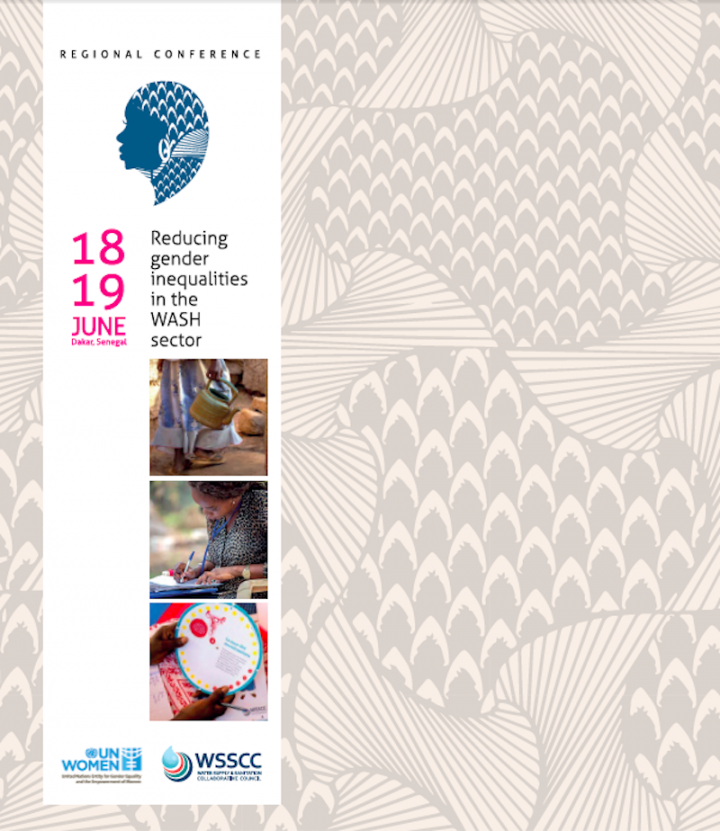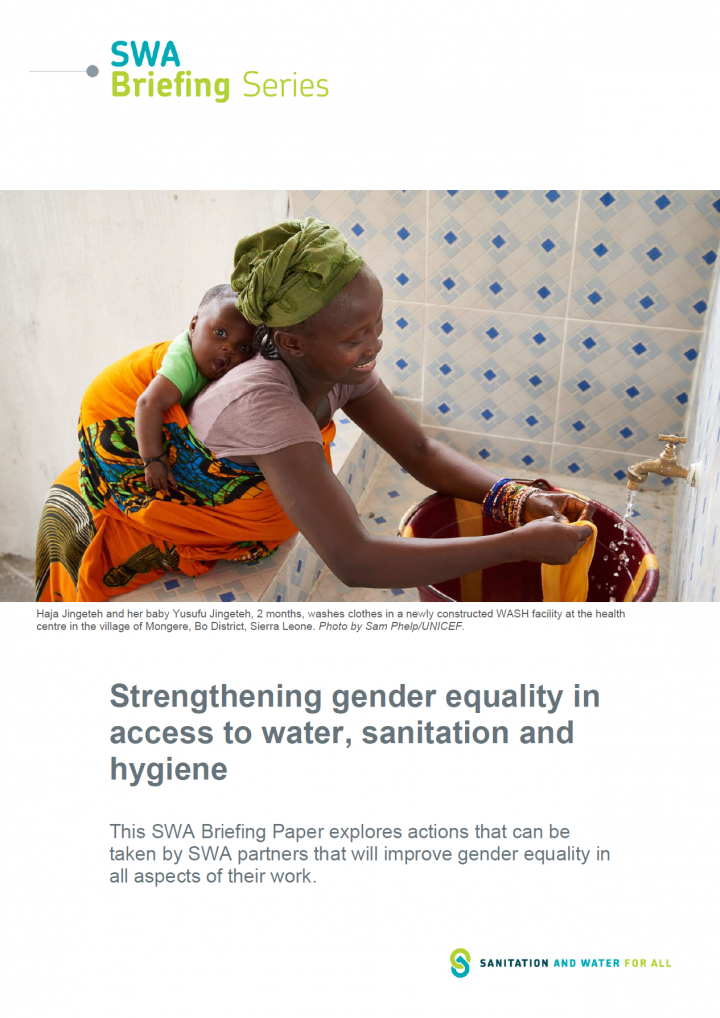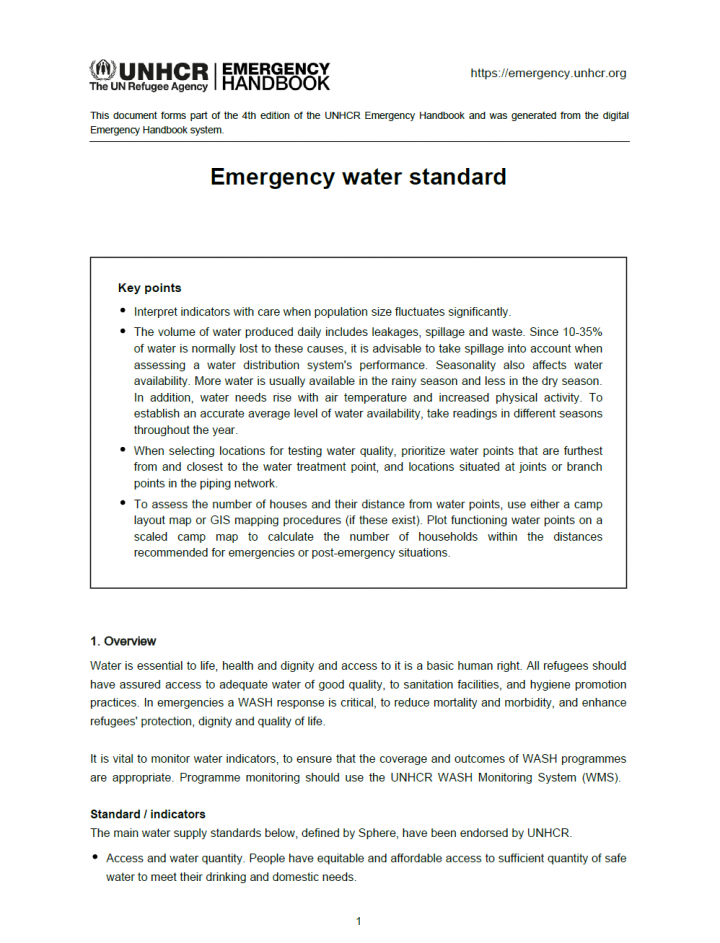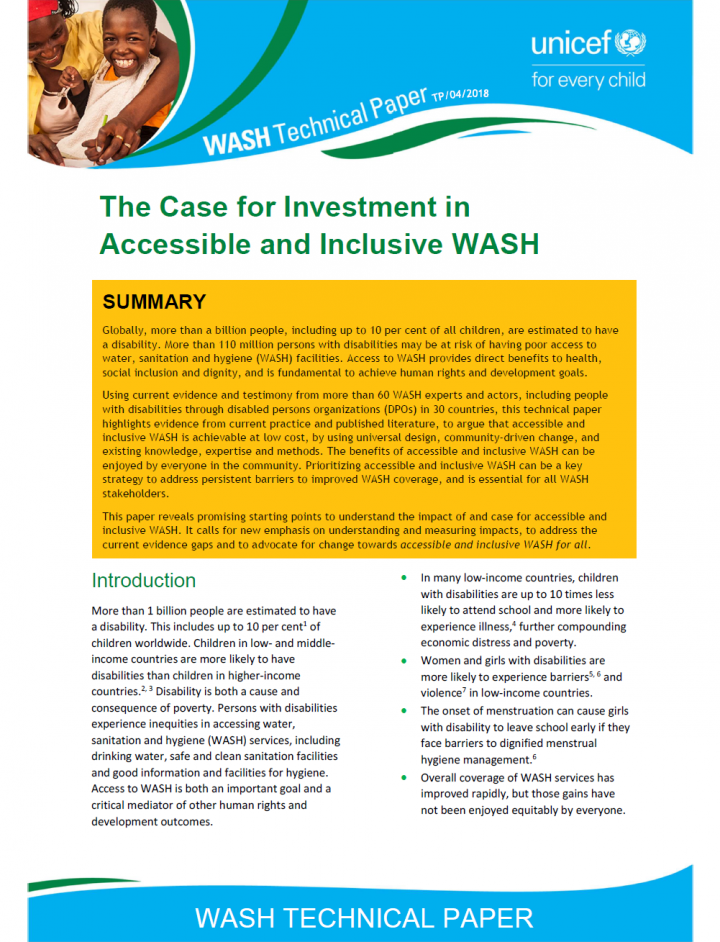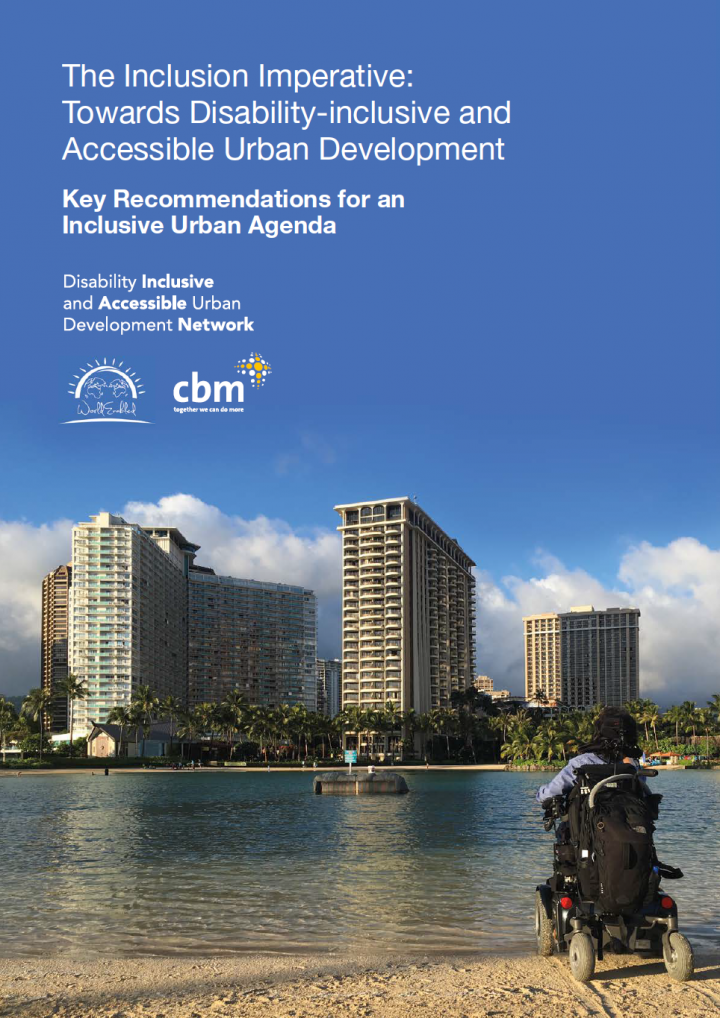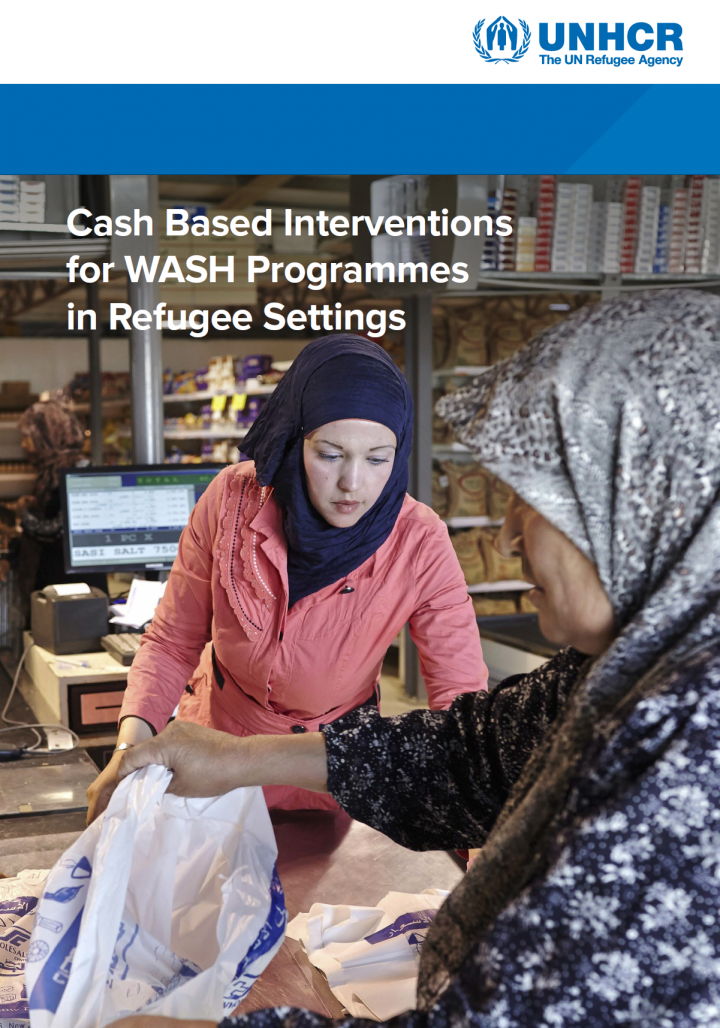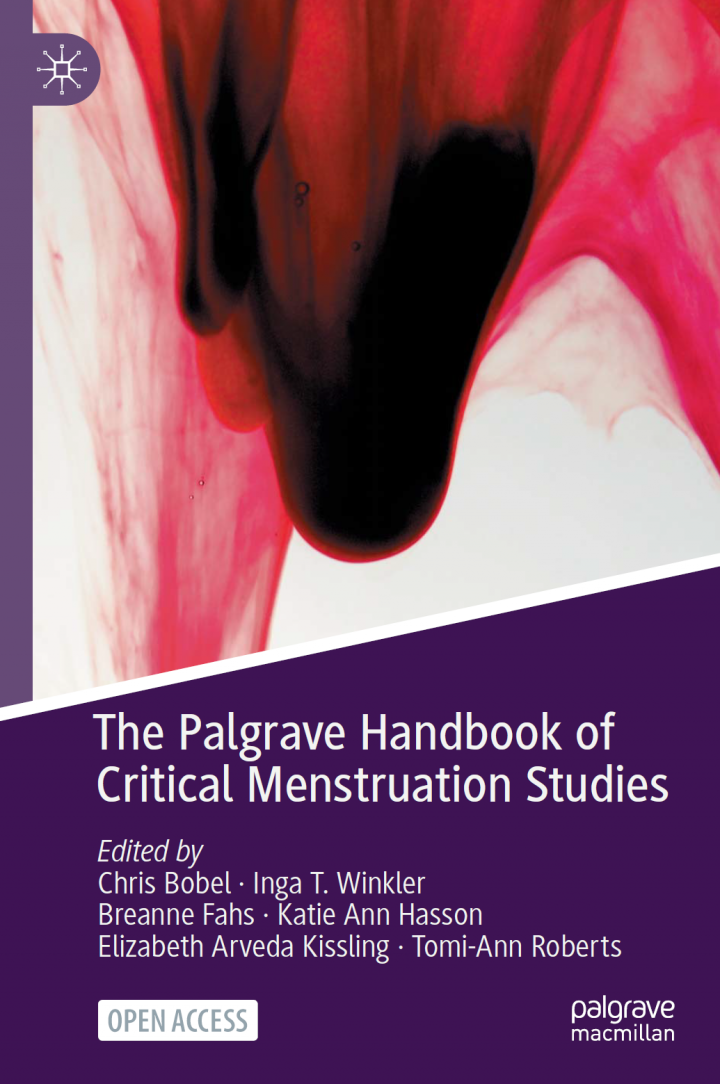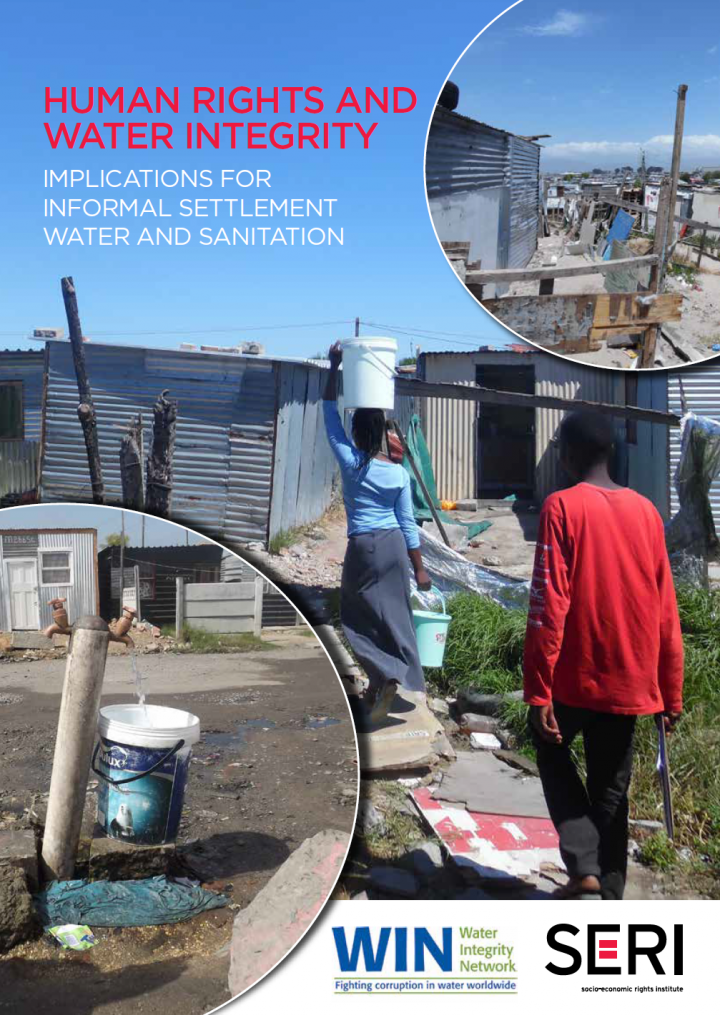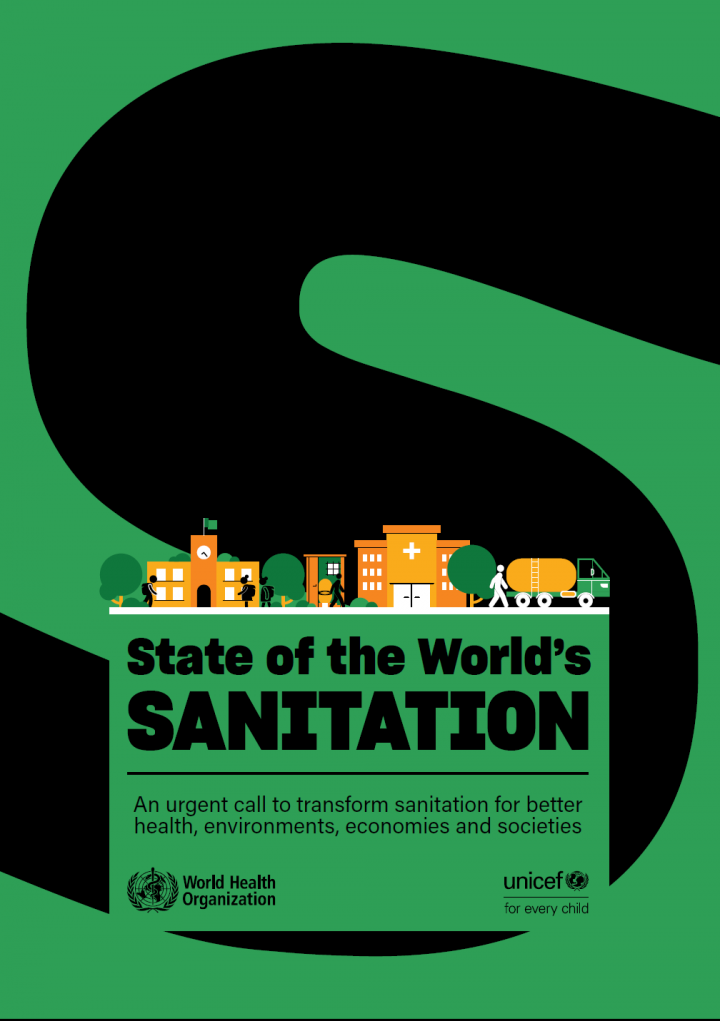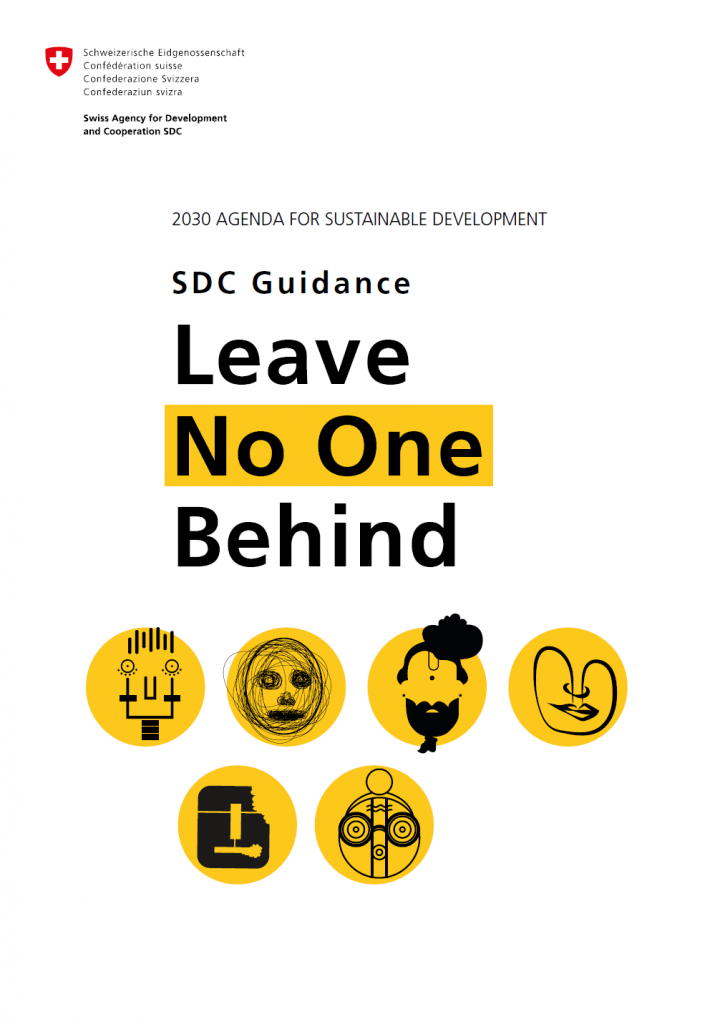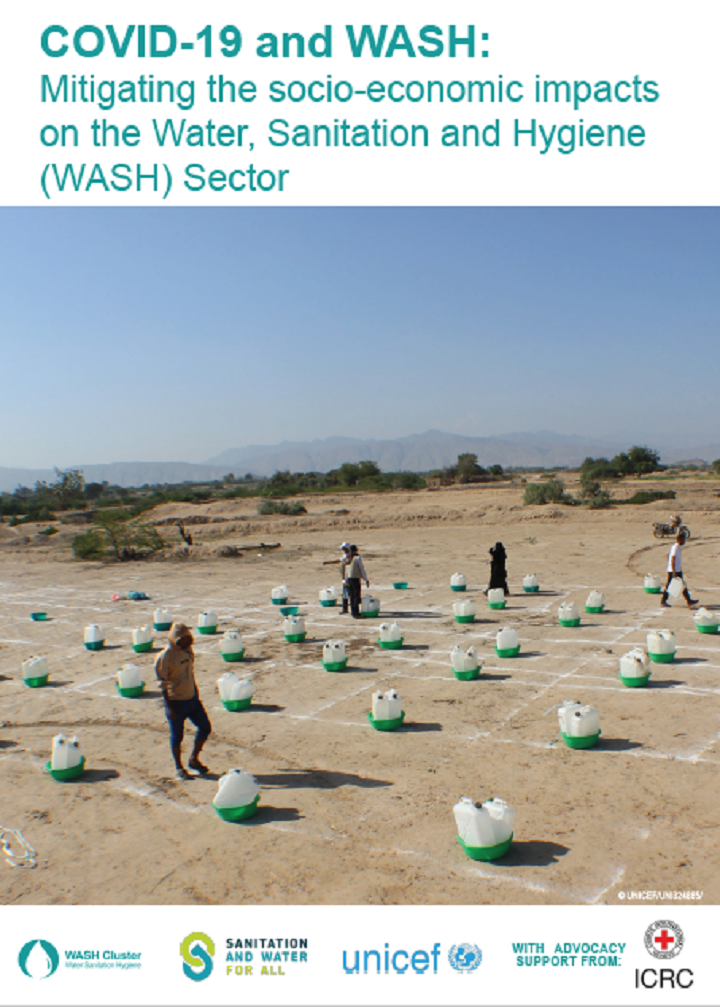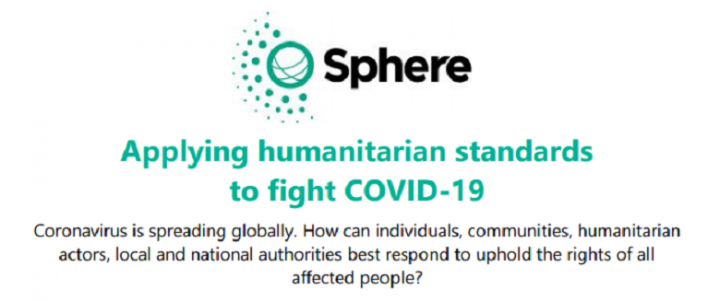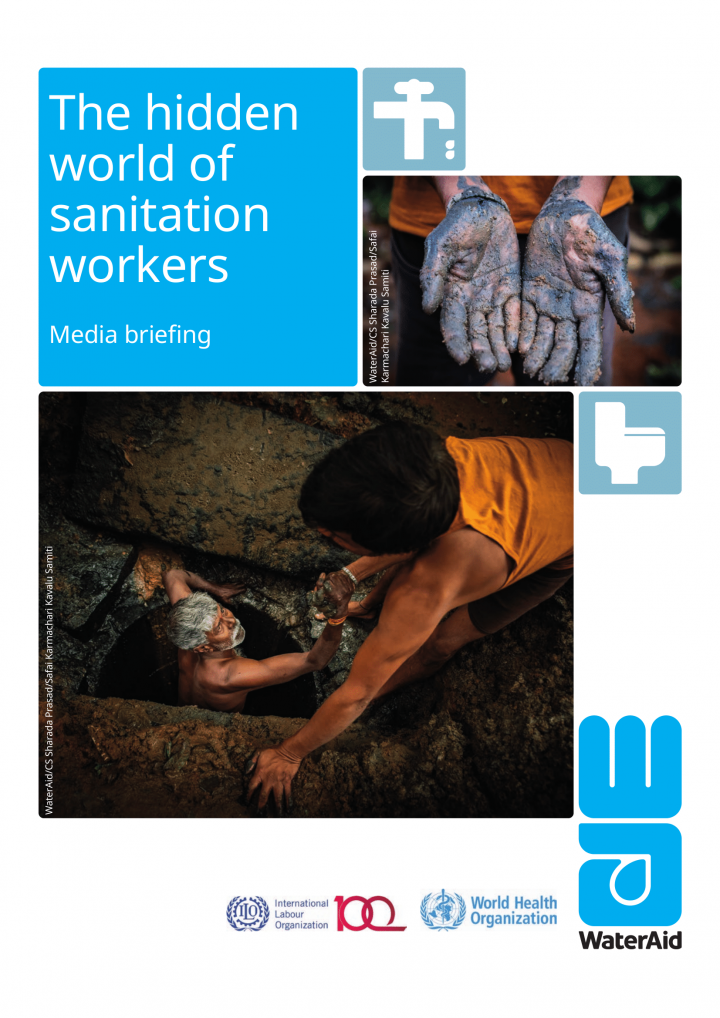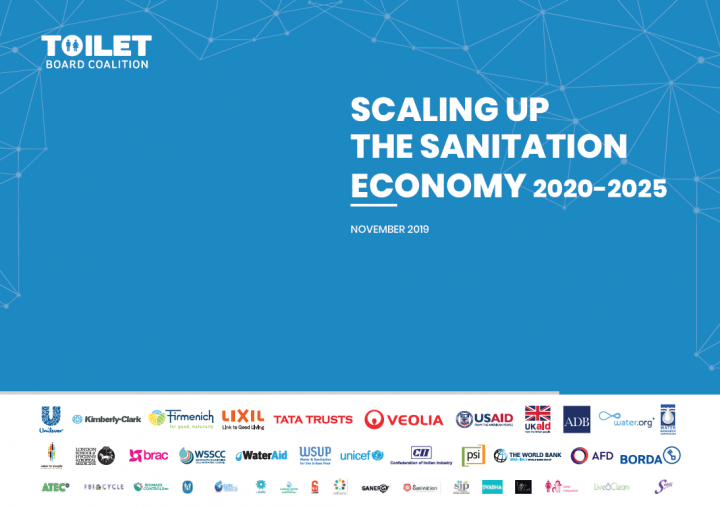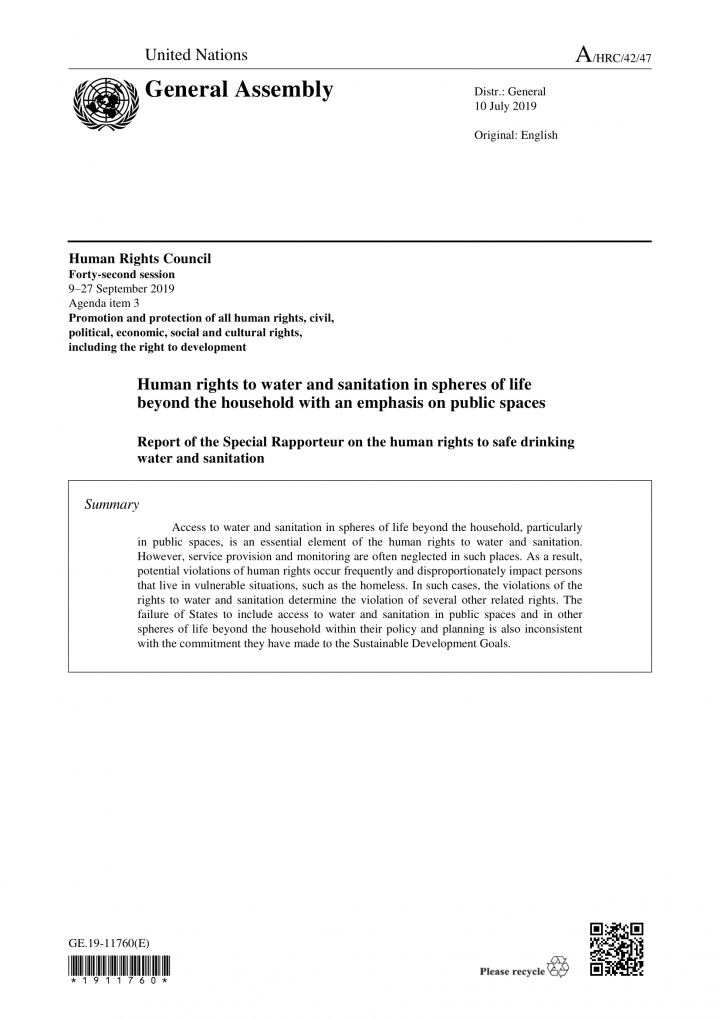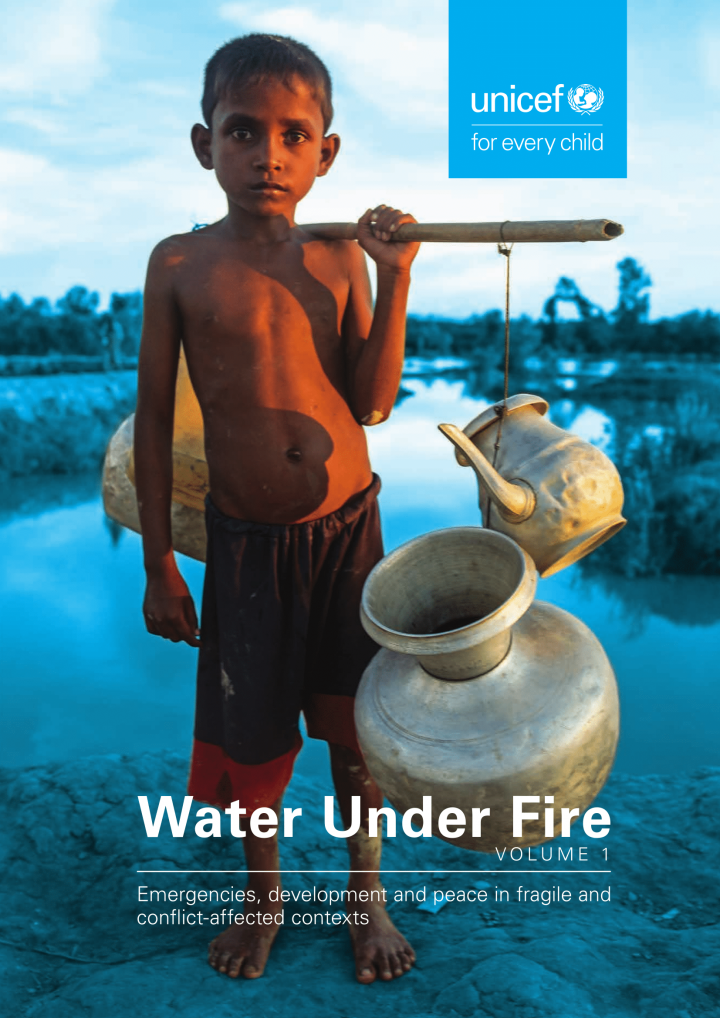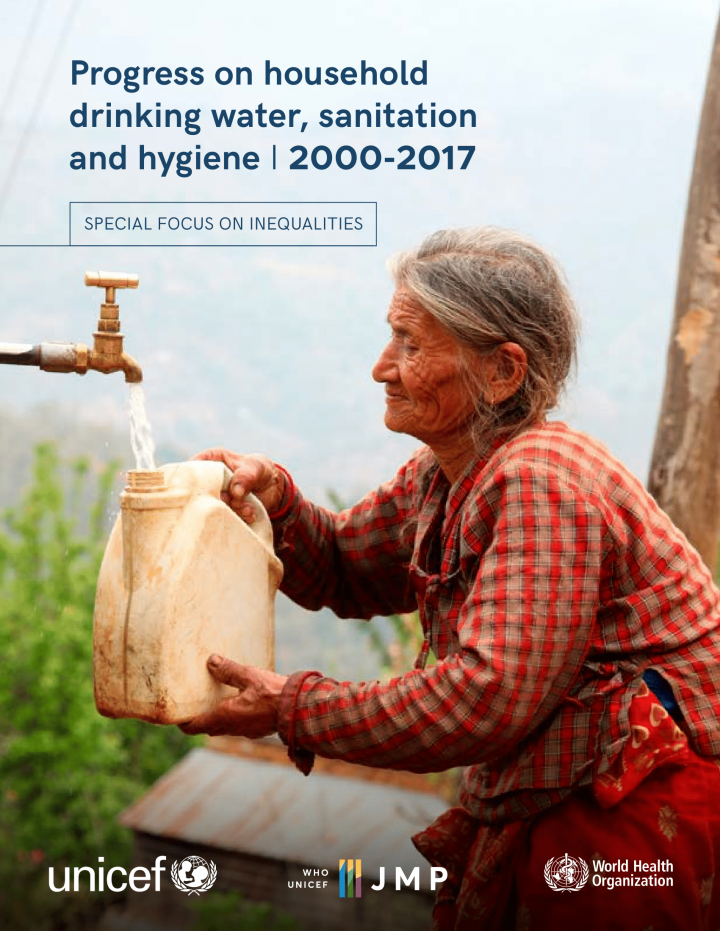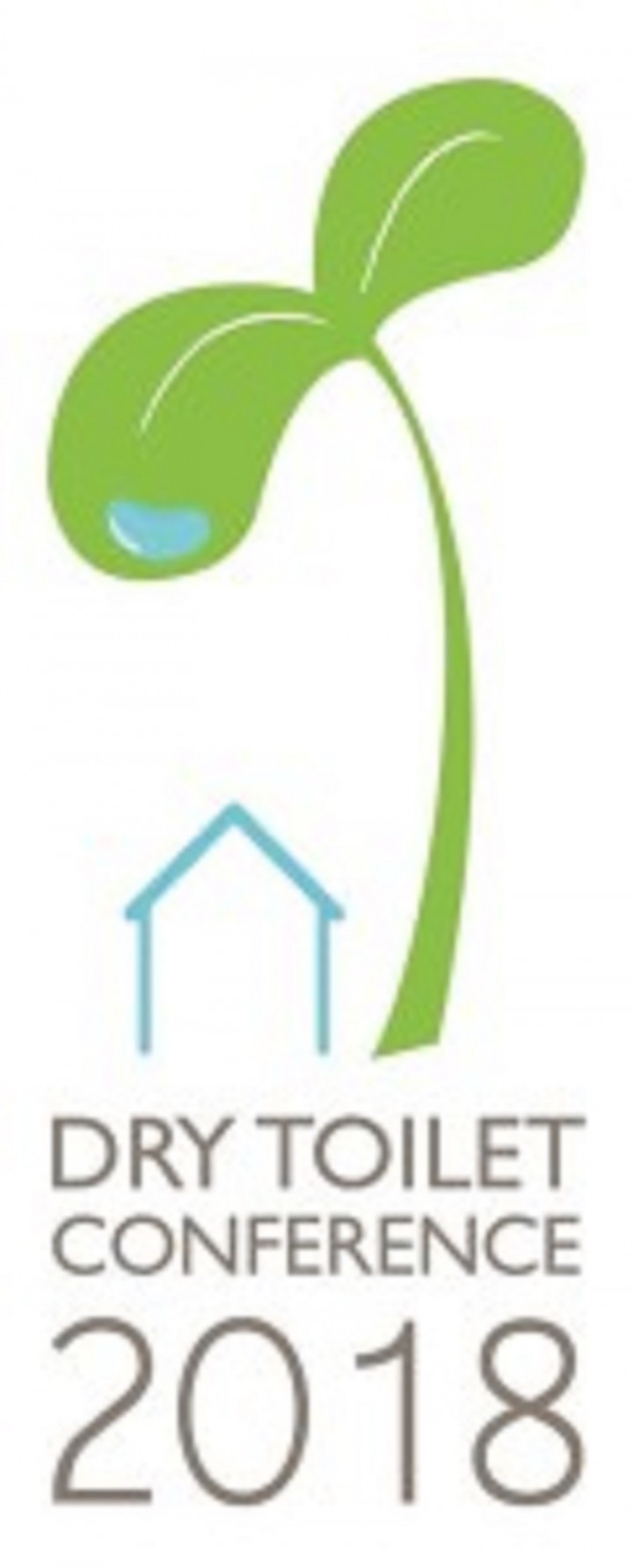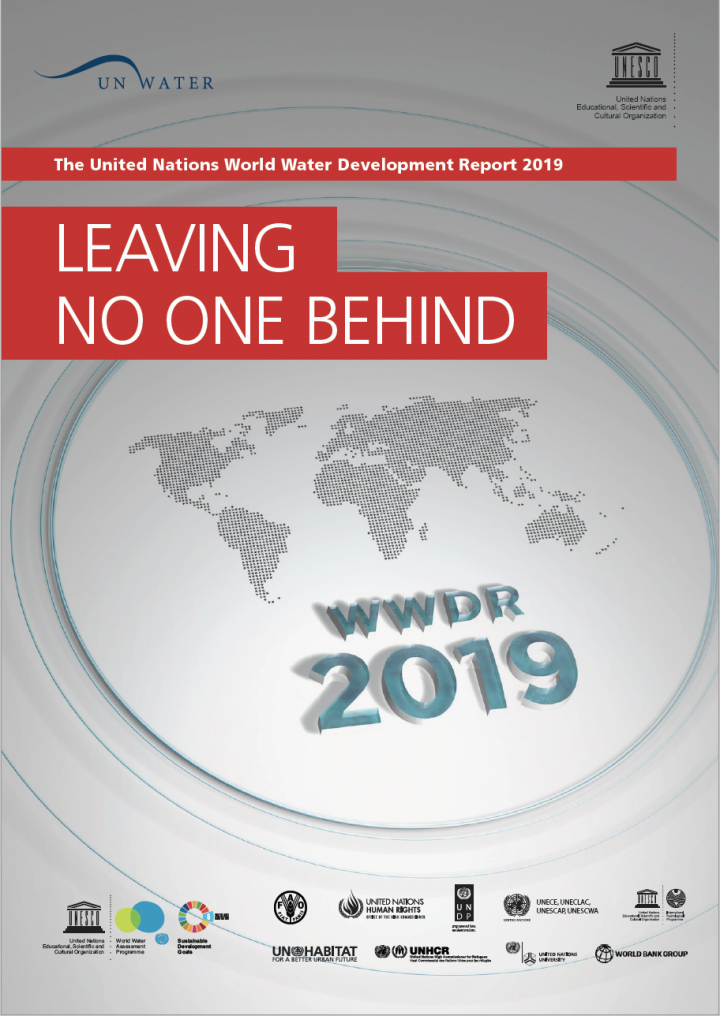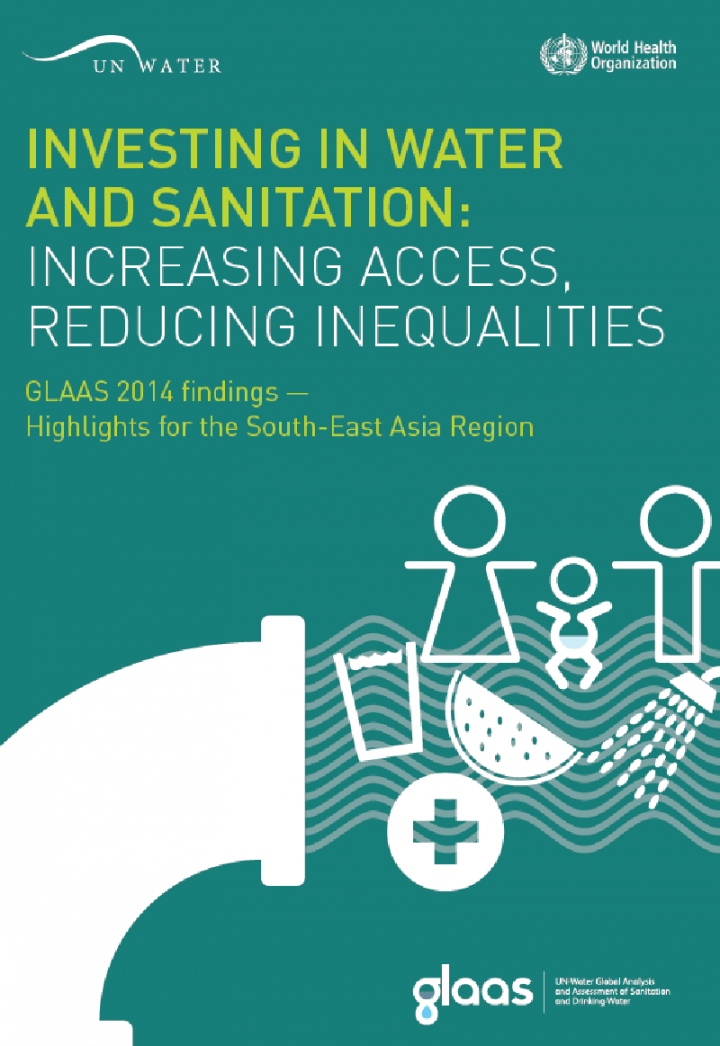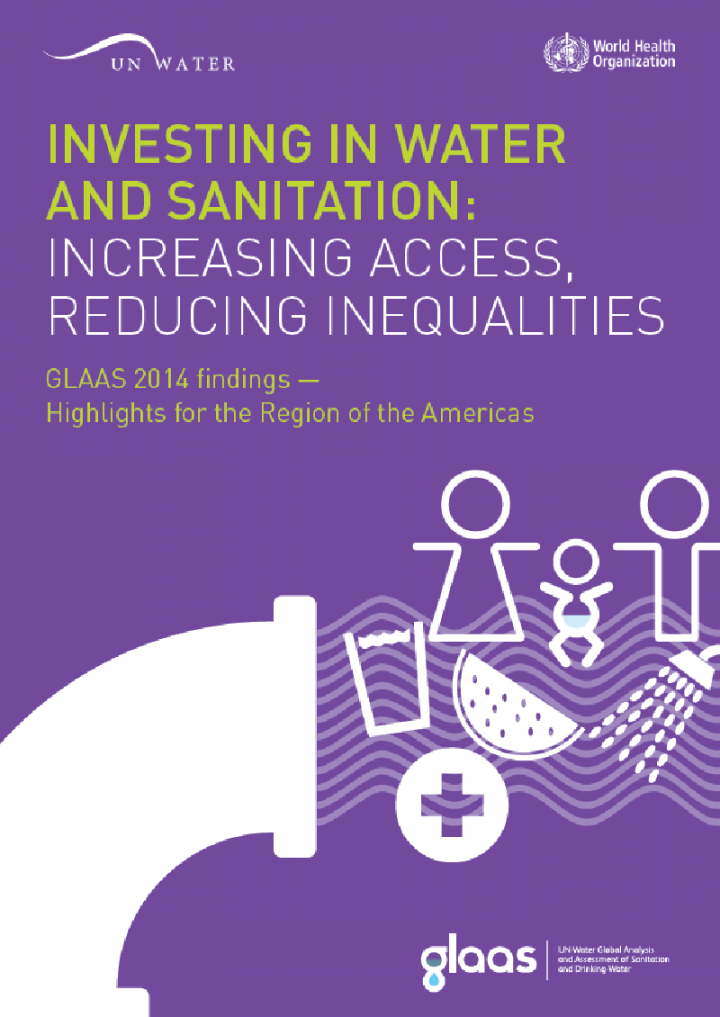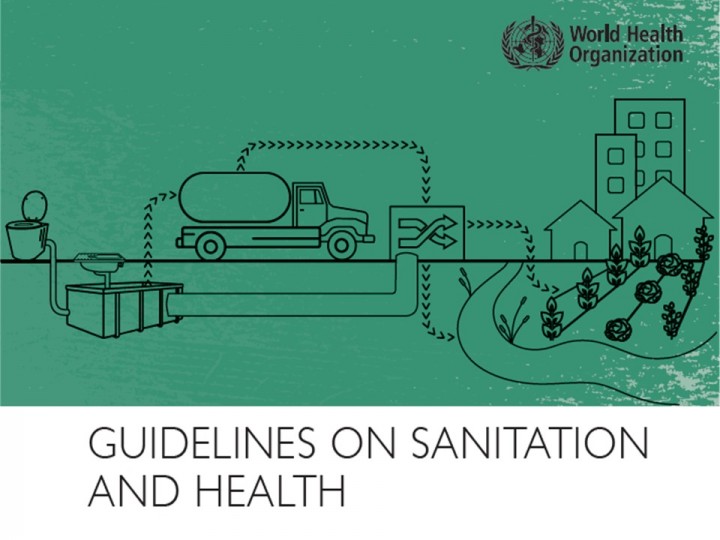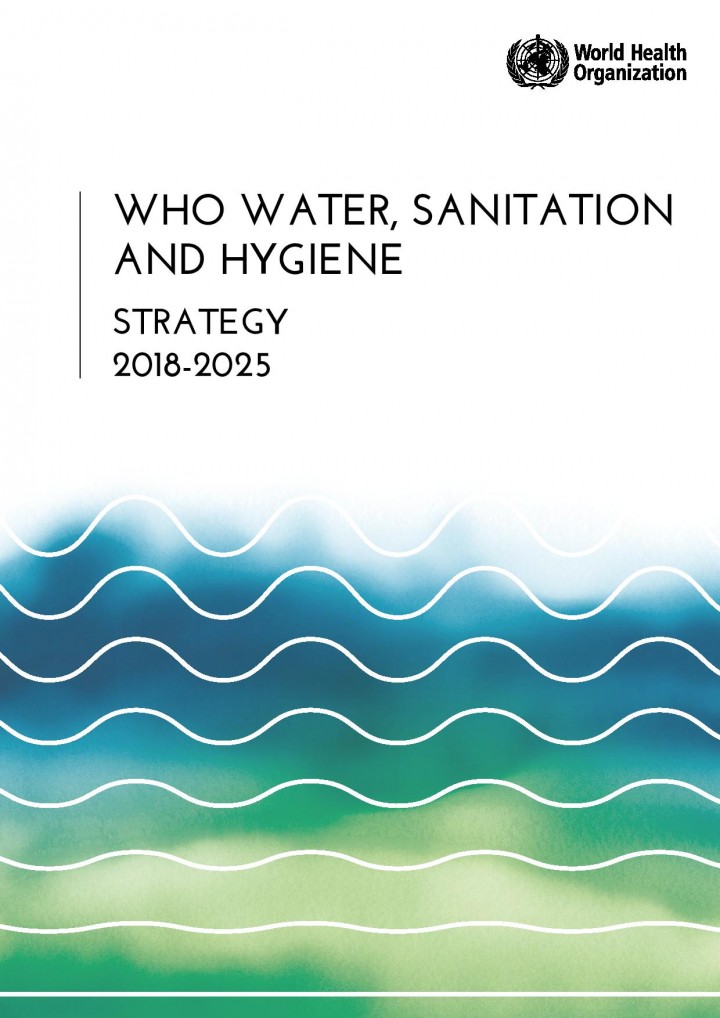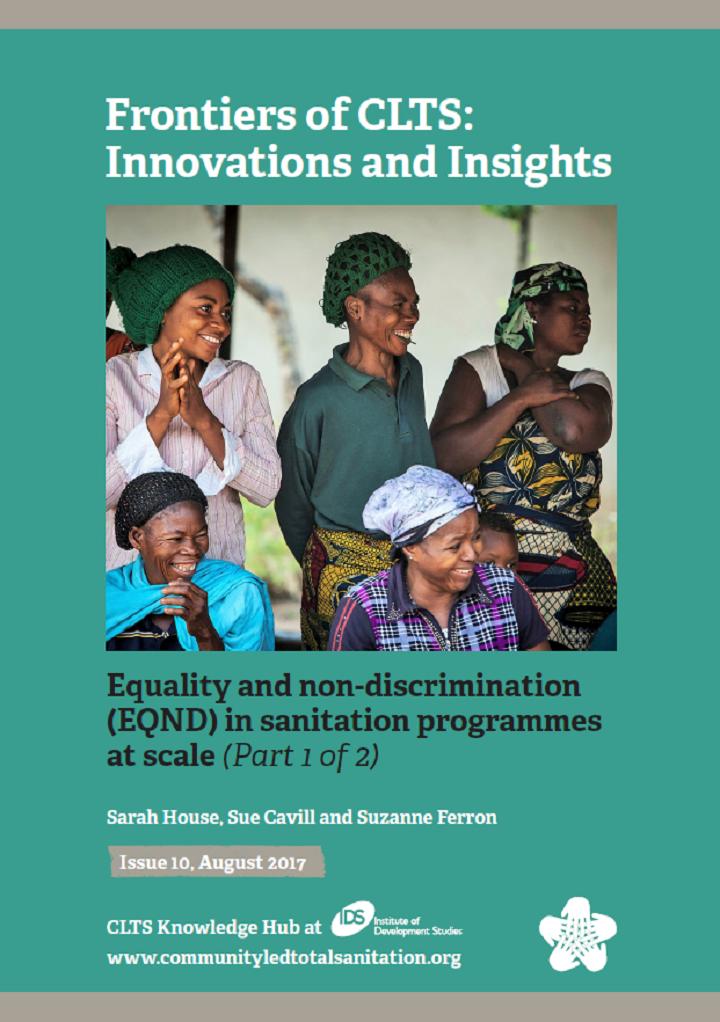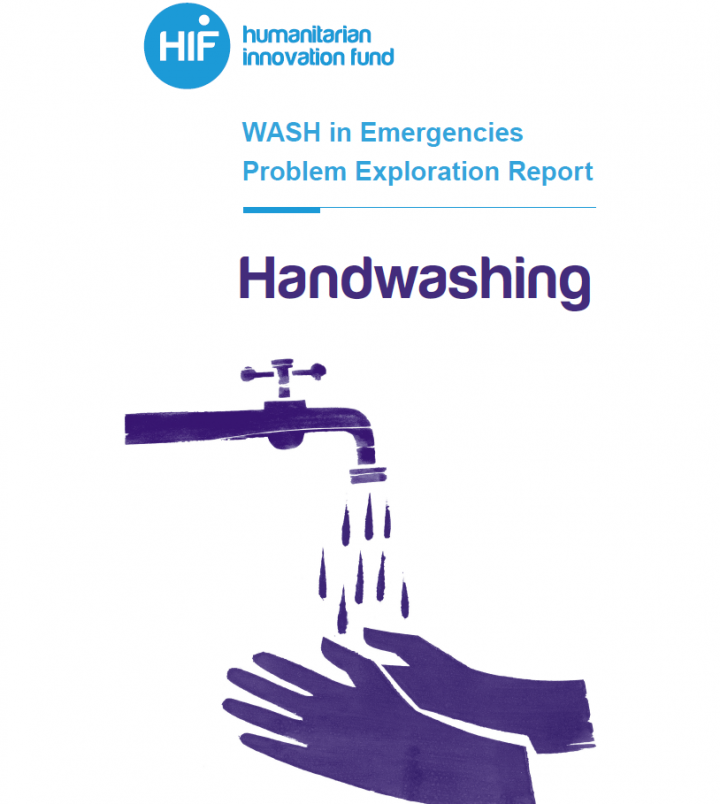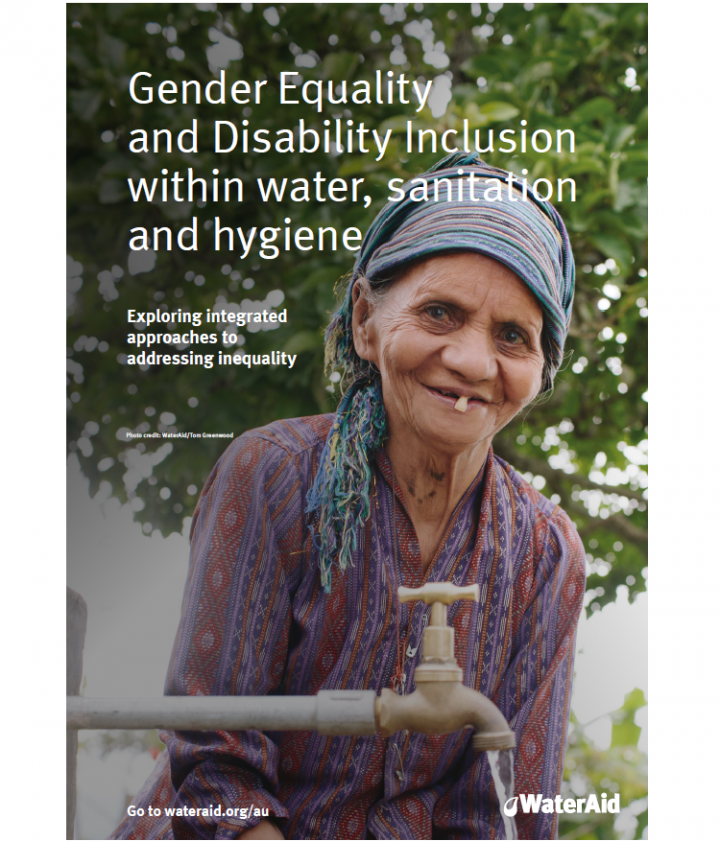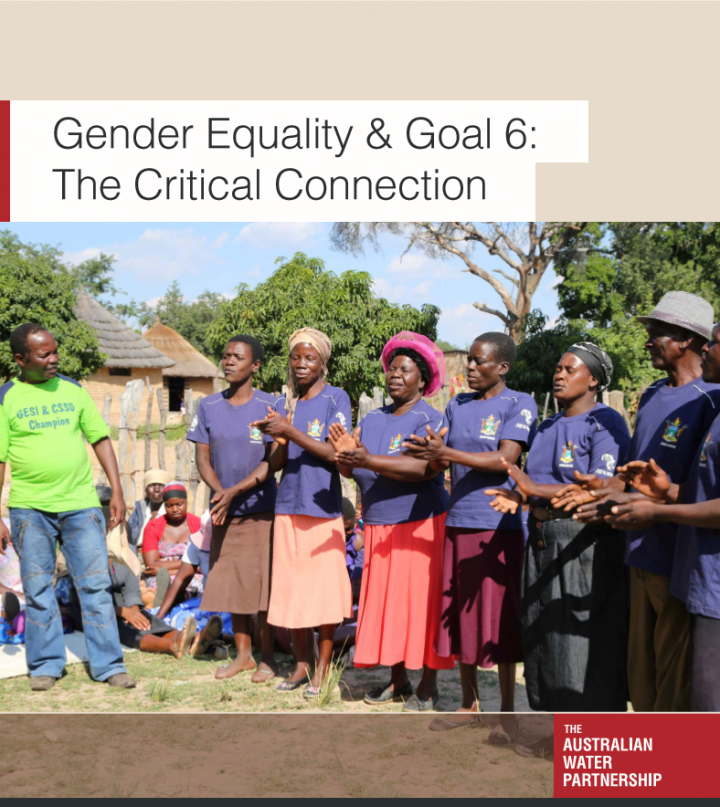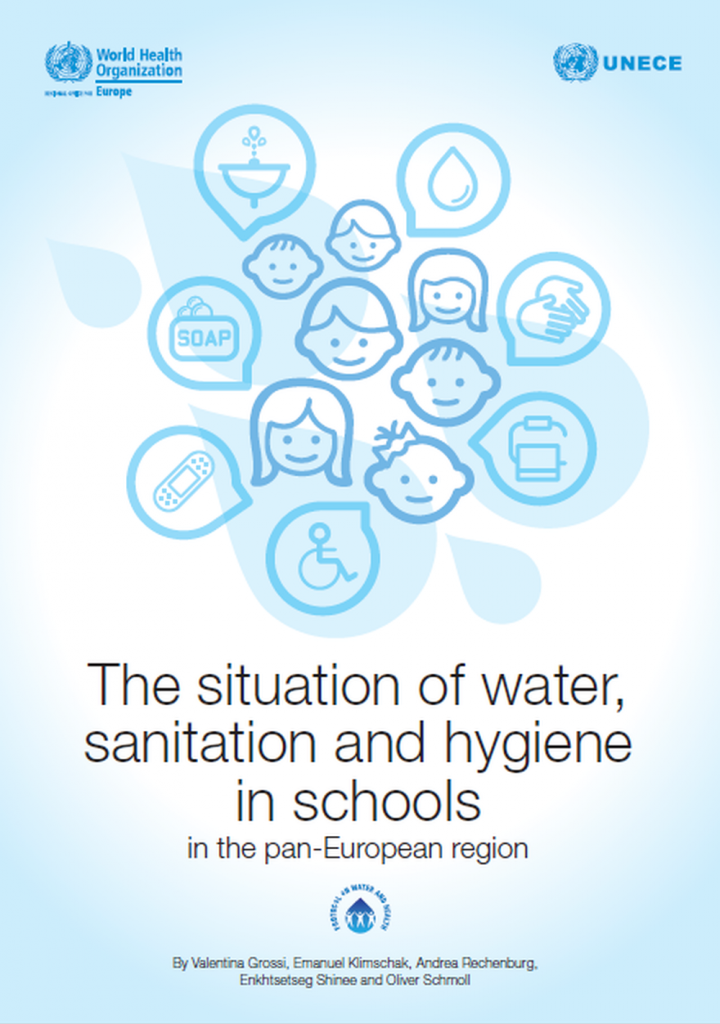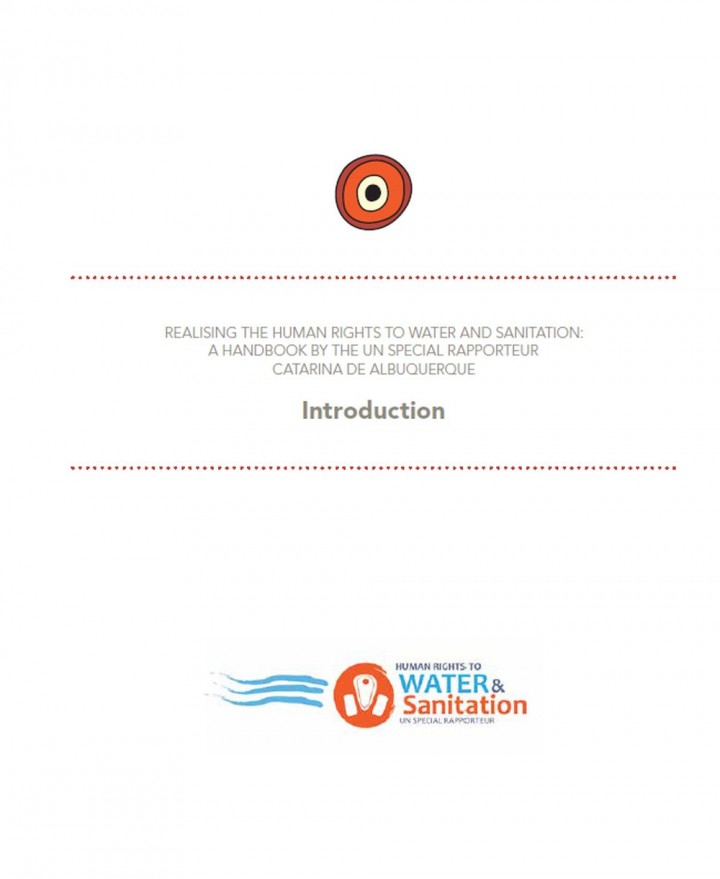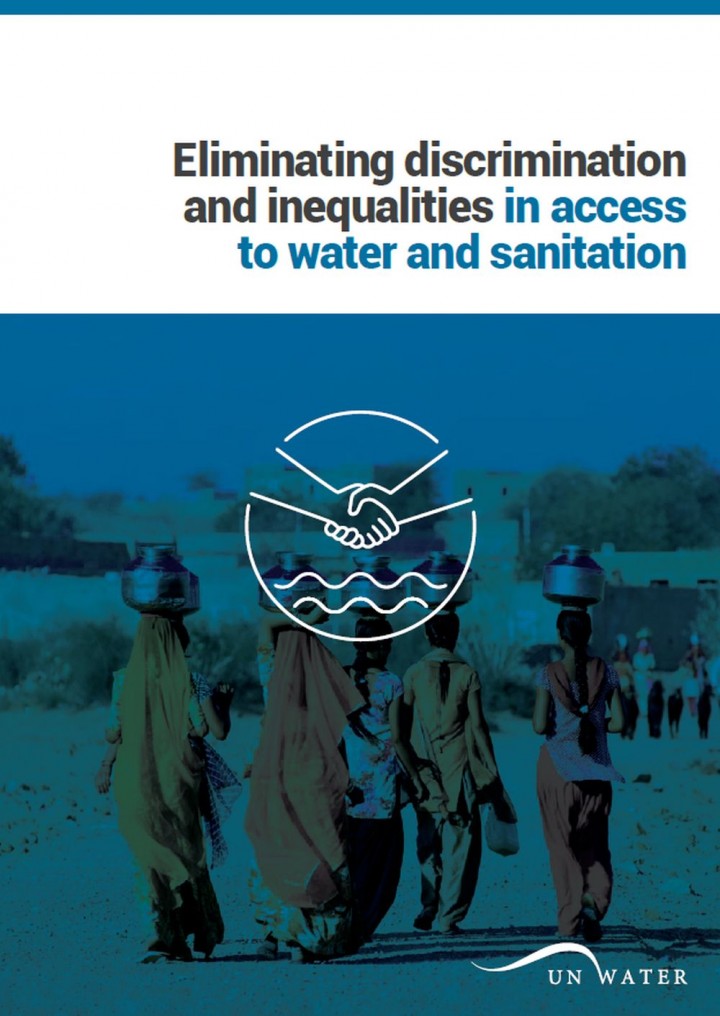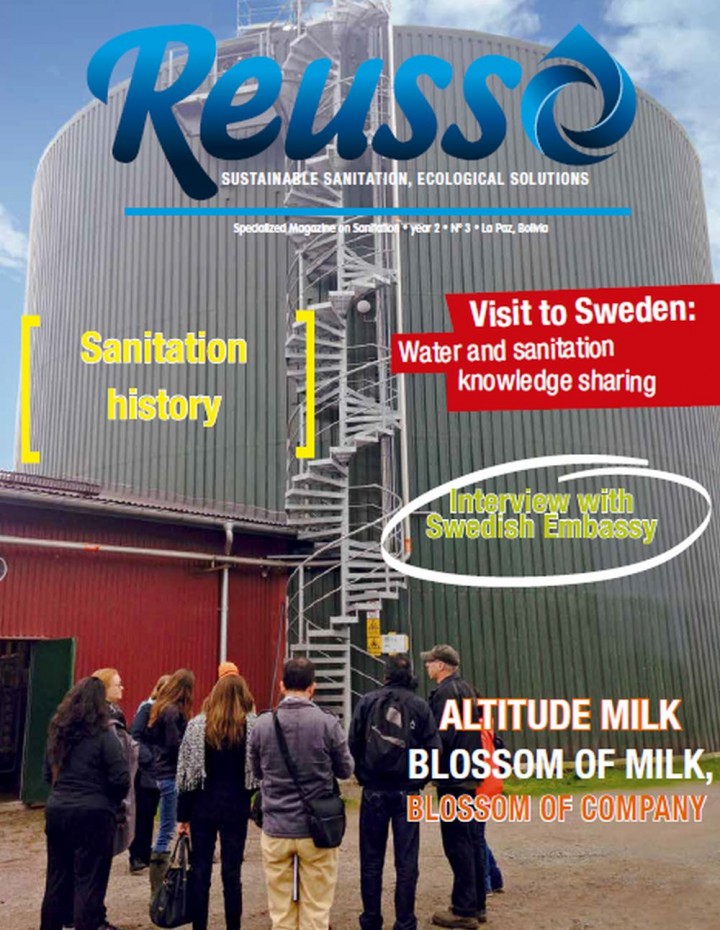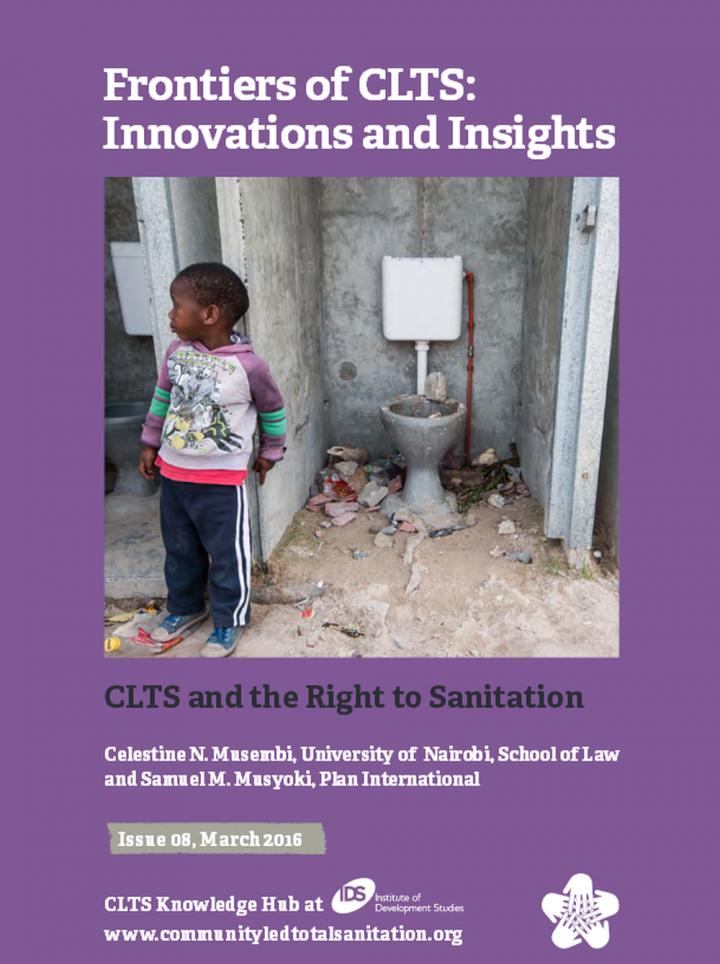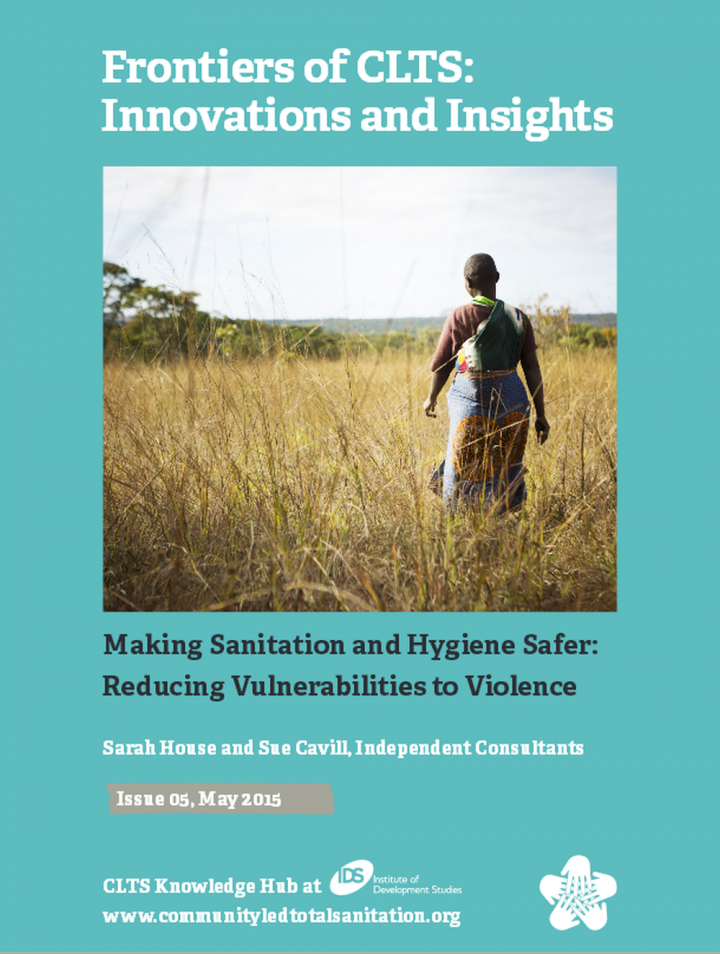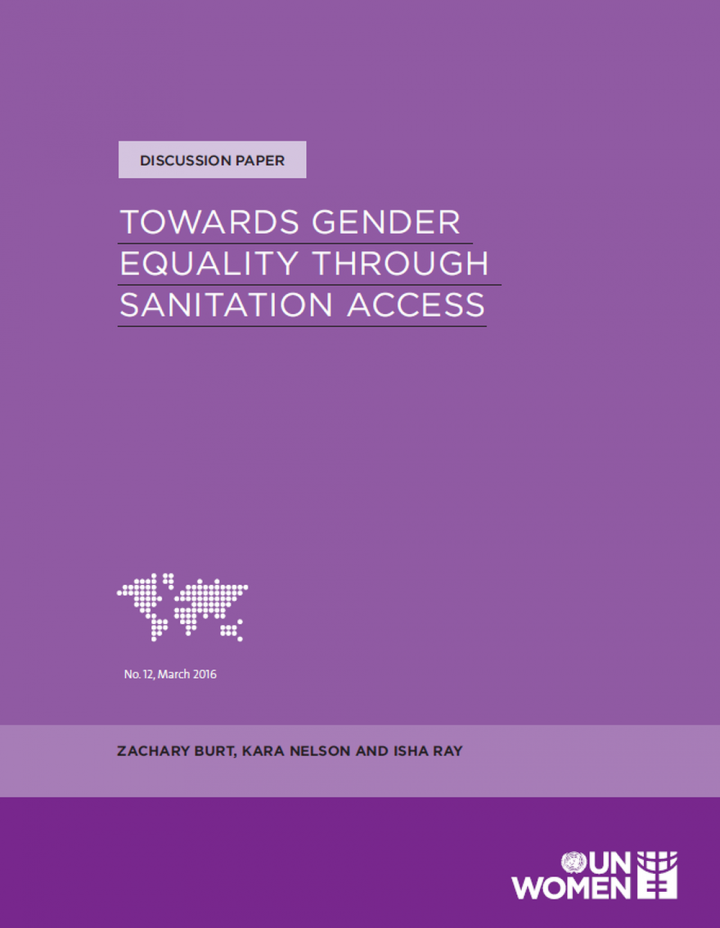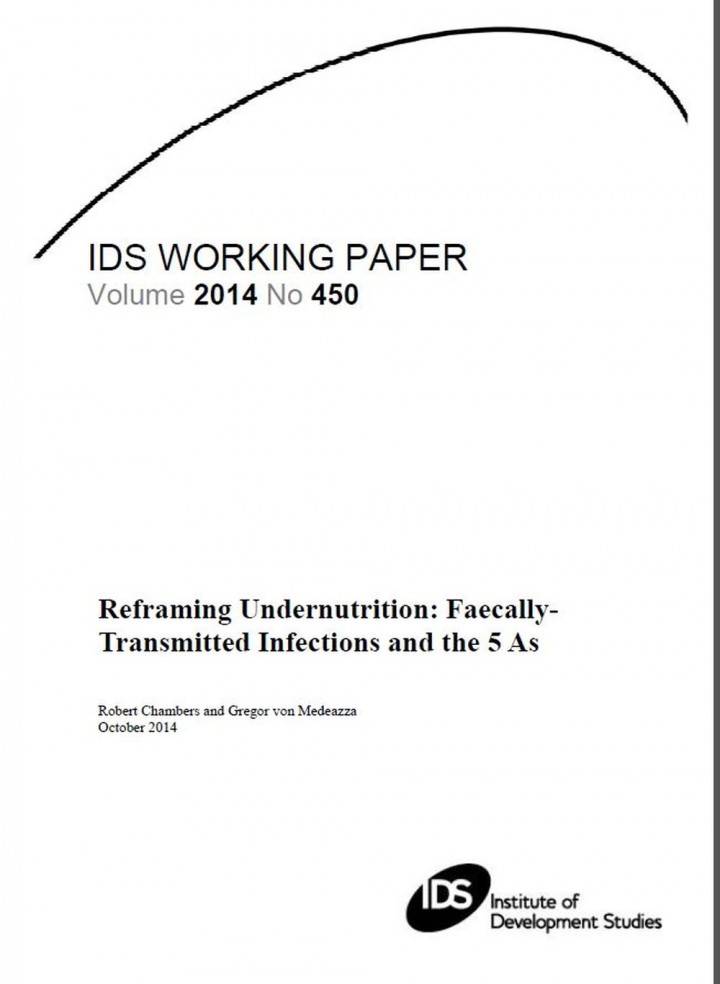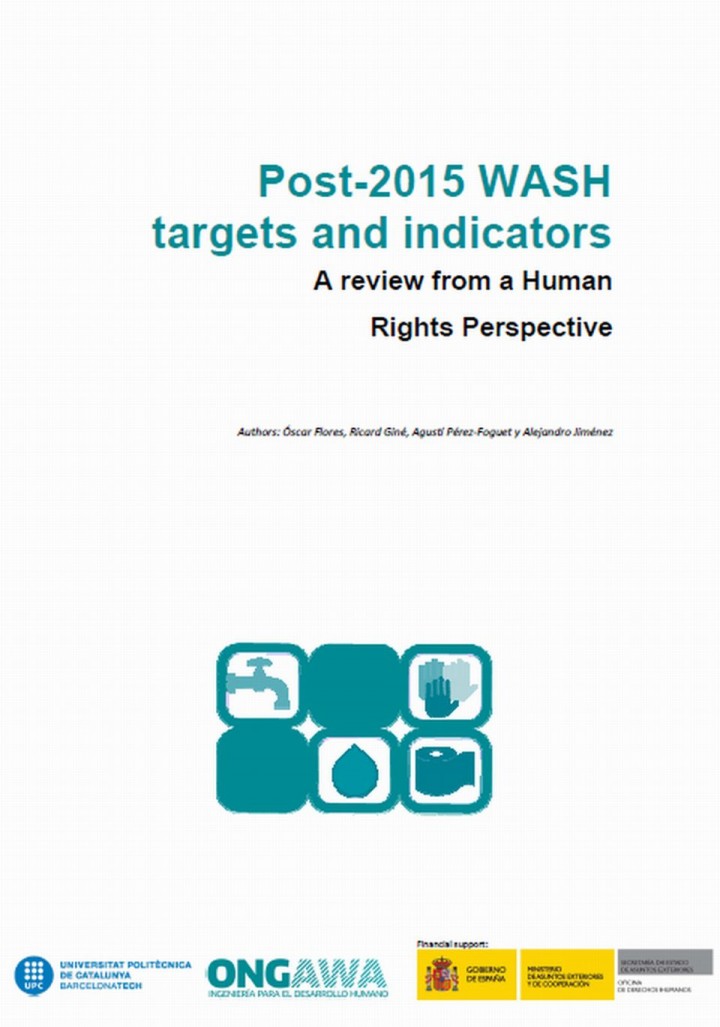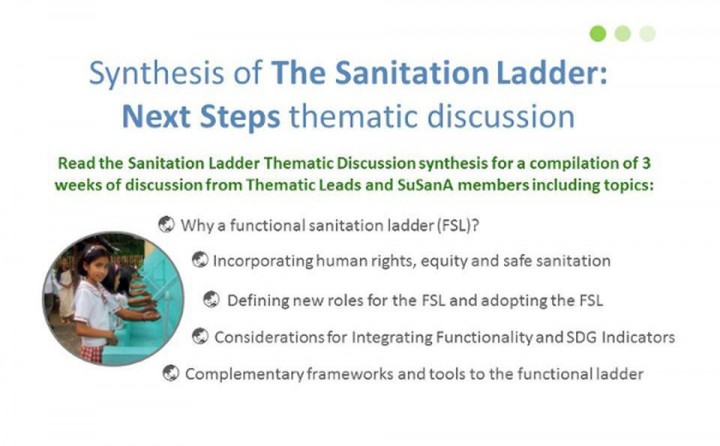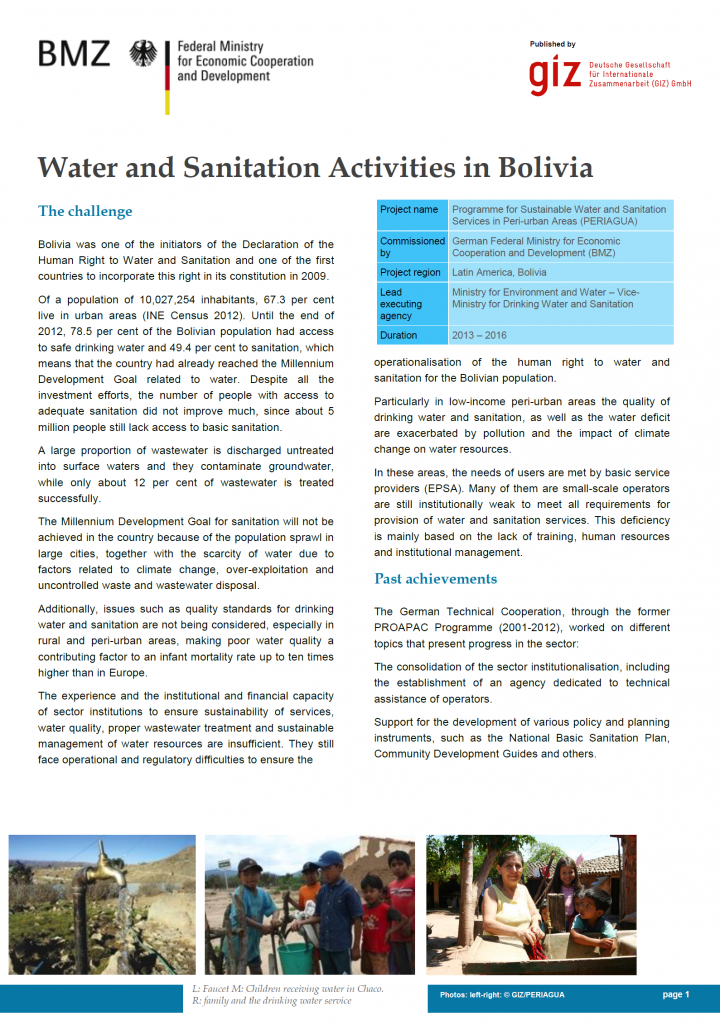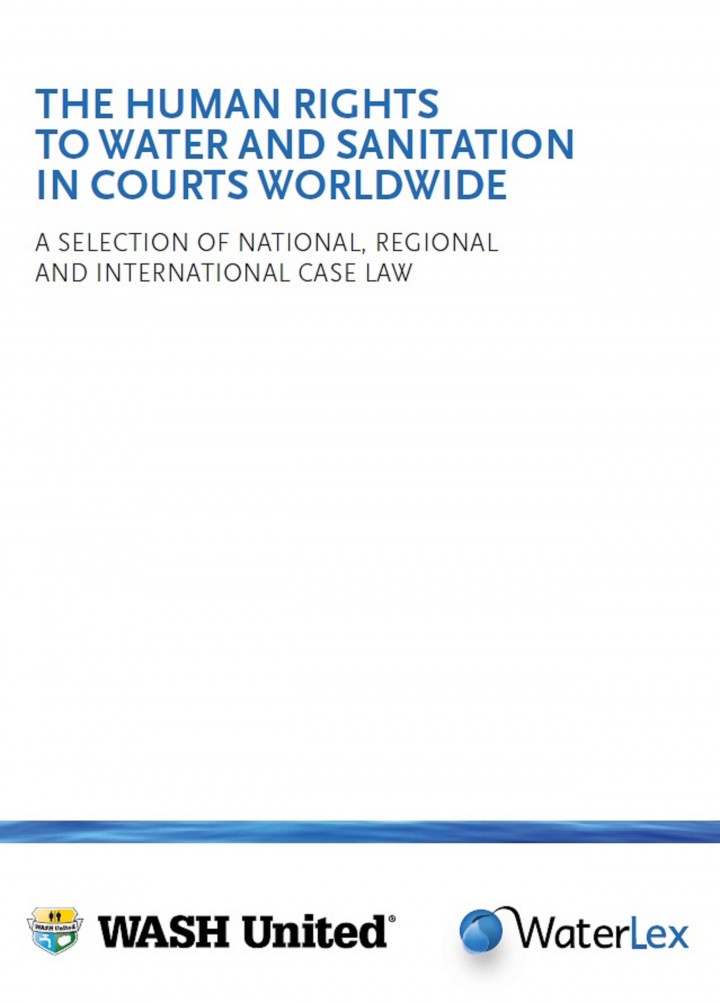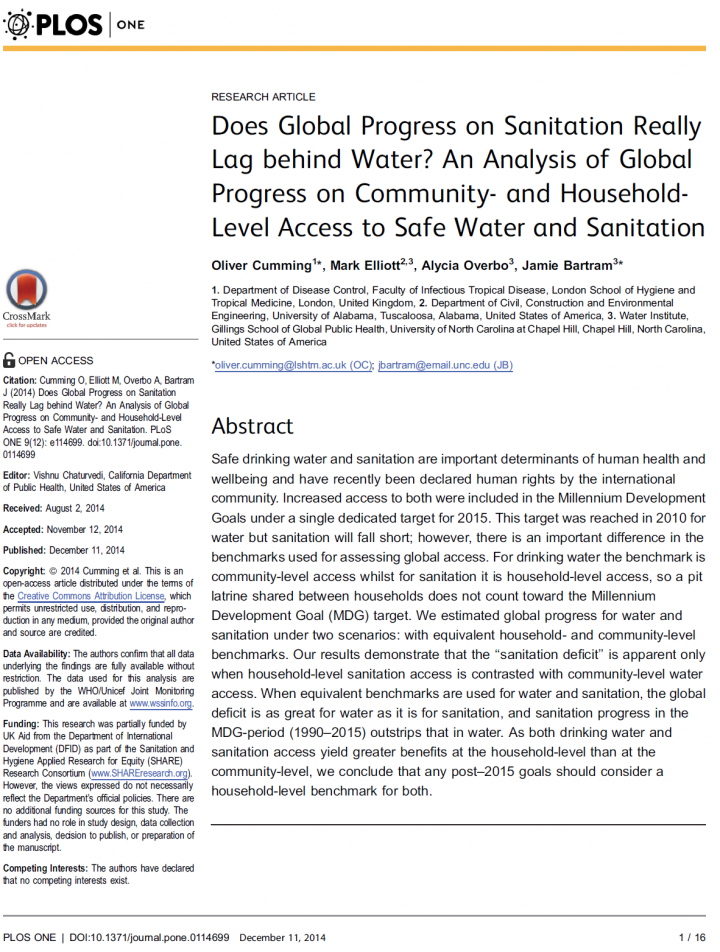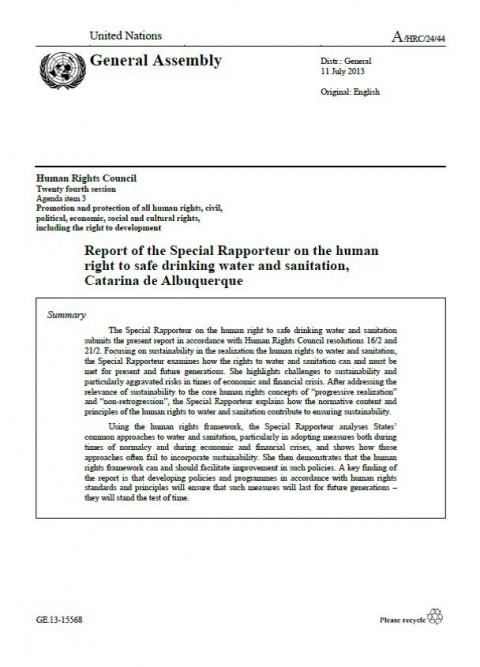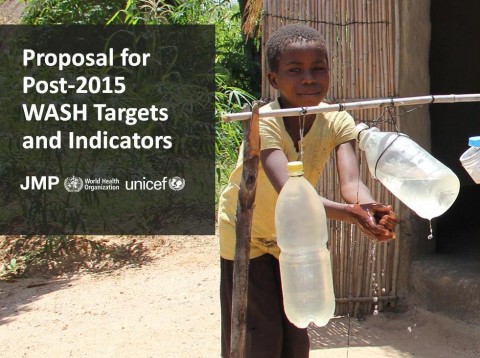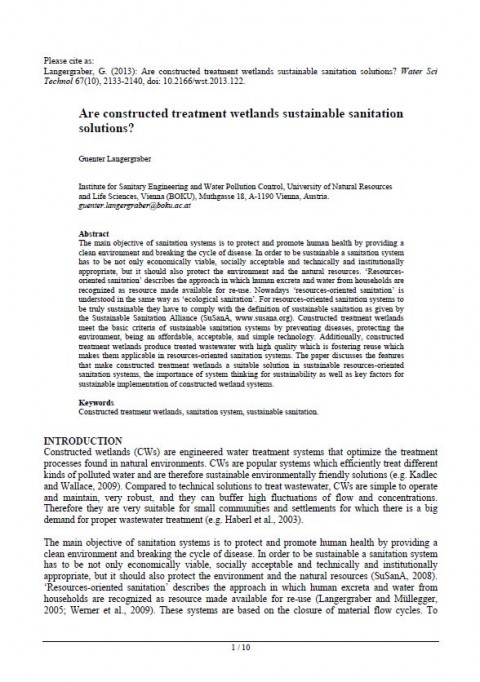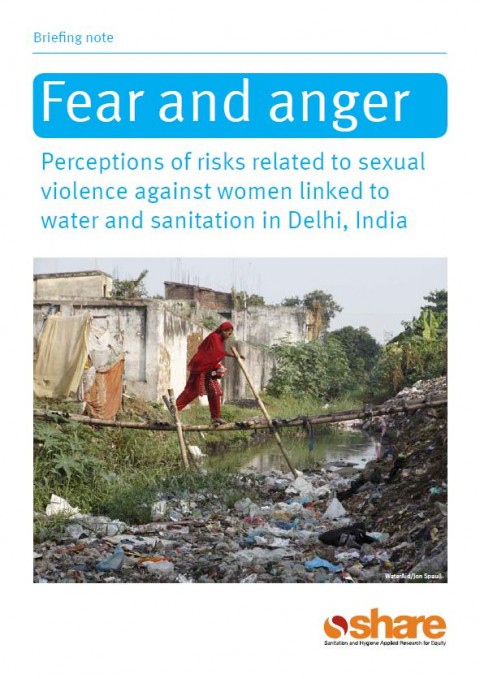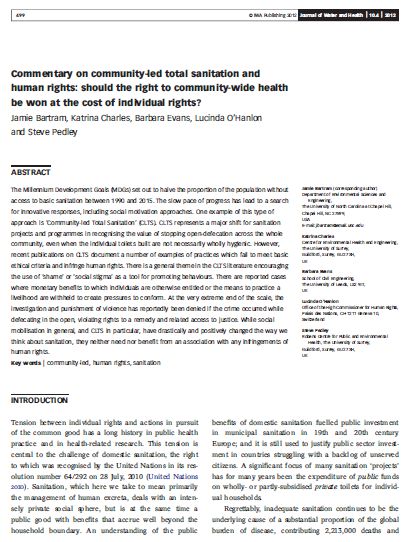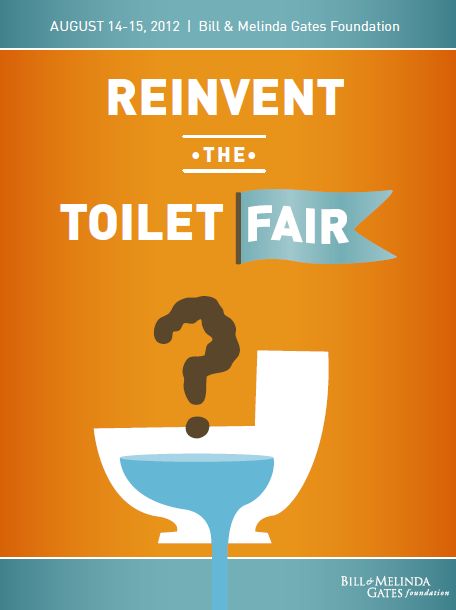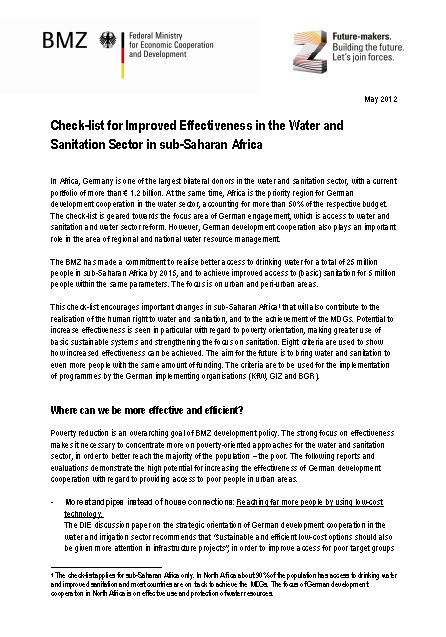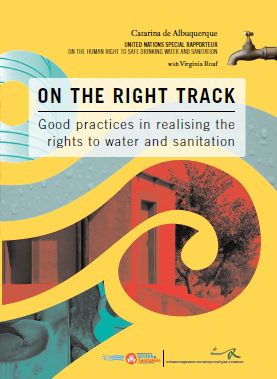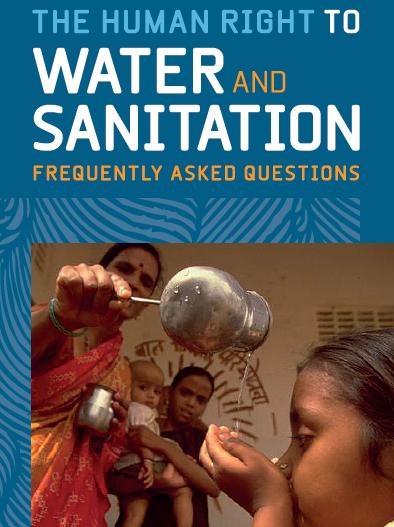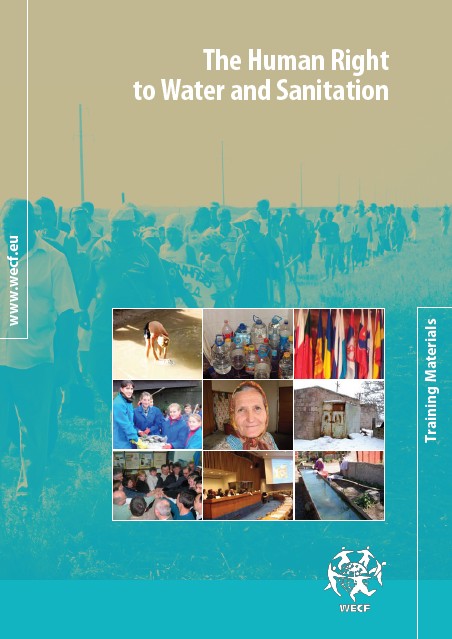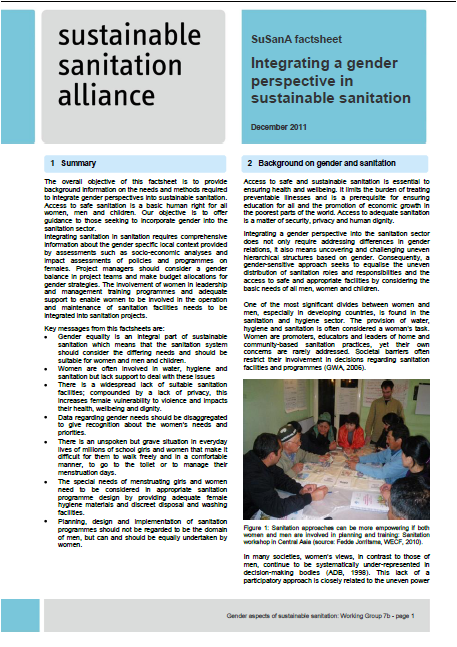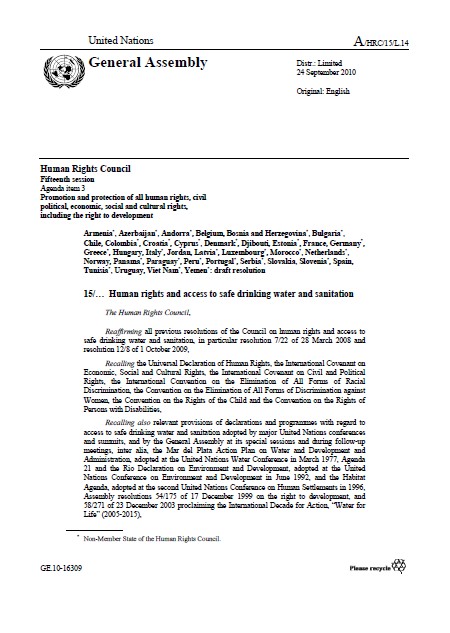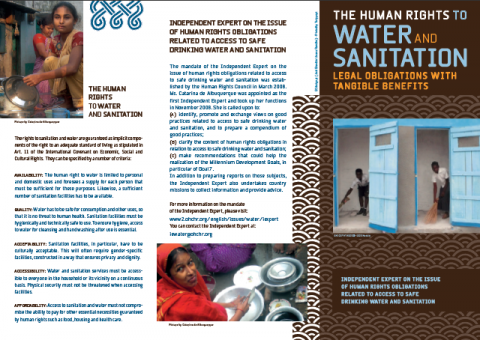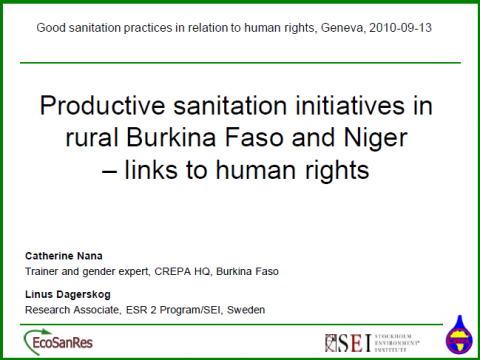Searching for information on Sanitation Workers?
The Sanitation Workers Knowledge + Learning Hub is the best source for all current news, trends, articles and updates on sanitation workers rights around the world.
The WASH for Health approach presents significant opportunities for advancing not only SDG 3 (Good Health and Wellbeing) and SDG 6 (Clean Water and Sanitation) through improving public health outcomes, including WASH in infectious disease control, health system strengthening, and sexual and reproductive health and rights. Adopting the One Health approach provides a broader perspective, …
A análise comparativa entre os municípios de Caçador, Videira e Concórdia, em Santa Catarina, no Brasil, e Sault Ste. Marie, Thunder Bay, North Bay, Chatham-Kent, Woodstock e Kenora, em Ontário, no Canadá possibilita a identificação de diferenças e semelhanças nos sistemas de saneamento, compreensão dos desafios e oportunidades e, consequentemente, embasamento para políticas públicas …
Menstrual Health & Hygiene Management (MHH) is a topic of concern for health, education, human rights, water, and sanitation sector. In Pakistan, more than 42 million (roughly 22%) girls aged between 10 to 19 years are at menstruation age1. Pakistan has the world’s second-highest number of out-of-school children with an estimated 22.8 million children, of which the majority are girls. The net …
The right to water and sanitation entitles everyone to have access to sufficient, safe, acceptable, physically accessible, and affordable water for personal and domestic use. In 2010, the UN General Assembly and the Human Rights Council recognized clean drinking water and safe sanitation to be human rights, essential to the full enjoyment of life and all other human rights. Additionally, …
Globally, at least two billion people use a drinking water source contaminated with faeces1. As result of microbial contamination with faeces, it poses the greatest risk to drinking-water safety. In 2010, the UN General Assembly explicitly recognized the human right to water and sanitation. Everyone has the right to sufficient, continuous, safe, acceptable, physically accessible, and affordable …
Polite notice: This session includes detail (through the documentary film and presentations) about real-life cases of sanitation worker deaths and injuries, which some viewers/attendees may find upsetting*
Workshop to connect key learnings from the labour and human rights sectors (on occupational health and safety, formalisation, collectivisation, worker entitlements and responding to labour …
Our vision is a world in which every child affected by an emergency wherever she/he is – at home or displaced; in schools; and in health institutions – has the right and access to safe water supply and adequate sanitation facilities and is enabled to perform basic hygiene.
This operational guidance outlines the role Humanitarian WASH will play within Save the Children 2019-2021 strategy. The …
Building on a human right-based approach, the Gender,Hygiene and Sanitation (GHS) Joint Programme, implemented by the Water Supply and Sanitation Collaborative Council (WSSCC) and the United Nations Entity for Gender Equality and the Empowerment of Women (UN Women), intends to support governments in assessing their policies, guidelines and budgets to better reflect women’s and girls’ rights …
This SWA Briefing Paper explores actions that can be taken by SWA partners that will improve gender equality in all aspects of their work.
While there has been significant progress over the last few decades, gender inequality continues to be one of the most pervasive human rights violations throughout the world. Despite considerable attention and commitment, including through the SDGs’ …
Water is essential to life, health and dignity and access to it is a basic human right. All refugees should have assured access to adequate water of good quality, to sanitation facilities, and hygiene promotion practices. In emergencies a WASH response is critical, to reduce mortality and morbidity, and enhance refugees' protection, dignity and quality of life.
It is vital to monitor water …
Globally, more than a billion people, including up to 10 per cent of all children, are estimated to have a disability. More than 110 million persons with disabilities may be at risk of having poor access to water, sanitation and hygiene (WASH) facilities. Access to WASH provides direct benefits to health, social inclusion and dignity, and is fundamental to achieve human rights and development …
Urbanization is one of the most important global trends of the 21st century. It has the potential to contribute to the “re-design” of our world supporting the creation of sustainable and inclusive cities for all. About 6.25 billion people, 15% of them with disabilities, are predicted to be living in urban centers by 2050. Urban environments,
infrastructures, facilities, and services, …
Human rights underpin all aspects of UNHCR’s international protection work and provide a basic normative framework governing UNHCR’s protection and asistance activities, including in support to access water, sanitation and hygiene (WASH) services. UNHCR supports the full implementation by States of their obligations under international and human rights law as provided for, inter alia, in the …
This open access handbook, the first of its kind, provides a comprehensive and carefully curated multidisciplinary genre-spanning view of the state of the field of Critical Menstruation Studies, opening up new directions in research and advocacy. It is animated by the central question: ‘“what new lines of inquiry are possible when we center our attention on menstrual health and politics …
Despite clear international law on the human right to water, and widespread recognition of this right, almost one billion people still do not have adequate, affordable and safe access to water and 2.4 billion people do not have access to safe sanitation.
The world’s urban population is increasing and by conservative estimates, rates of growth will continue well into the middle of this …
The world is alarmingly off-track to deliver sanitation for all by 2030. Despite progress, over half of the world’s population, 4.2 billion people, use sanitation services that leave human waste untreated, threatening human and environmental health. An estimated 673 million people have no toilets at all and practise open defecation, while nearly 698 million school-age children lacked basic …
The 2030 Agenda for Sustainable Development recognises “that eradicating poverty in all its forms and dimensions, including extreme poverty, is the greatest global challenge and an indispensable requirement for sustainable development”. In adopting this Agenda, the international community pledged to leave no one behind, to see to it that the Goals and targets are met for all nations and …
Clean drinking water, improved sanitation and good hygiene practices are life-sustaining and play an important role in maintaining public health. The benefits of water, sanitation and hygiene (WASH) cannot be underestimated in controlling the spread of disease, as well as underpinning human rights, well-being and development. Safe water, sanitation and hygiene is a necessity to reduce the spread …
Sphere and its partner standards can guide our response. In situations of insecurity with the danger of misinformation and stigmatisation, it is important to understand and apply the most important and basic principles and actions to help limit the spread of the virus. There are tools from the humanitarian sector that can directly support your COVID-19 response. The sector has been gathering …
Every year, the human race produces over 350 million tonnes of poo – that’s enough to fill 140,000 Olympic swimming pools! Unless that human waste is properly dealt with, every single gram will pose a significant health risk to us and our planet.
Ensuring that our contact with human waste ends when we leave the toilet is one of the most important jobs in society, and yet around the world …
Leading businesses are engaged in efforts to reimagine sanitation systems as a net contributor of resources and data while addressing critical human rights. More importantly these leaders are driving their companies to go beyond risk and compliance to bring transformative positive change to millions of people affected by their business operations.
Global companies employ several millions of …
Access to water and sanitation in spheres of life beyond the household, particularly in public spaces, is an essential element of the human rights to water and sanitation. However, service provision and monitoring are often neglected in such places. As a result, potential violations of human rights occur frequently and disproportionately impact persons that live in vulnerable situations, such as …
Every child has the right to water and sanitation. And yet globally, in fragile and conflict-affected contexts, 420 million children lack basic sanitation and 210 million children lack access to safe drinking water. UNICEF launched the Water Under Fire campaign in March 2019 to draw global attention to three fundamental areas where changes are urgently needed to secure access to safe and …
The World Health Organization and United Nations Children’s Fund (WHO/UNICEF) Joint Monitoring Programme for Water Supply, Sanitation and Hygiene (JMP) produces internationally comparable estimates of progress on drinking water, sanitation and hygiene (WASH) and is responsible for global monitoring of the Sustainable Development Goal (SDG) targets related to WASH. The JMP has recently published …
The 6th International Dry Toilet Conference 2018 was held in Tampere, Finland on 22nd – 24th August 2018. The theme of the conference was Dry Toilet Goes Circular with a focus on Cooperation, Co-creation and Experimentation.
Please find the oral presentations and poster presentations below via the links to the page of the GlobalDry Toilet association of Finland.
***** Oral …
The UNESCO World Water Assessment Programme brings together the work of numerous UN-Water Members and Partners to produce the United Nations World Water Development Report series.The annual editions focus on strategic water issues. UN-Water Members and Partners as well as other experts contribute the latest knowledge on a specific theme.The 2019 Report seeks to inform policy and decision-makers, …
This South-East Asia Regional Highlights includes analysis of implementation of national policies, sustainability, human rights and equity measures, monitoring, human resources, financing and external support.
Ten out of the 11 countries in the WHO South-East Asia Region with a total population of 1.8 billion, participated in the GLAAS 2013/2014 reporting cycle. Overall, access to improved …
The Region of the Americas Highlights includes analysis of implementation of national policies, sustainability, human rights and equity measures, monitoring, human resources, financing and external support.
Sixteen countries out of 35 in the WHO Region of the Americas, with a total population of 550 million, participated in the GLAAS 2013/2014 reporting cycle. Overall, access to improved …
Safe sanitation is essential for health, from preventing infection to improving and maintaining mental and social well-being. The lack of safe sanitation contributes to diarrhoea, a major public health concern and a leading cause of disease and death among children under five years in low- and middle- income countries; poor sanitation also contributes to several neglected tropical diseases, as …
The WHO WASH Strategy has been developed in response to Member State Resolution WHA64.4 and the 2030 Agenda for Sustainable Development and its Sustainable Development Goals (SDGs). It also takes on board the need for progressive realization of the human rights to safe drinking-water and sanitation, adopted by the UN General Assembly in July 2010. The 2025 end date of the Strategy is proposed to …
This issue of Frontiers of CLTS shares and builds on the learning from the GSF EQND study, which examined EQND in relation to sanitation programmes being implemented at scale. It draws on existing global experience and looks at who should be considered potentially disadvantaged and how they can participate. It explores what the challenges may be if CLTS does not actively ensure that the …
Access to water, sanitation and hygiene promotion is one of the key aspects to securing the health status of populations affected by emergencies and humanitarian crises. The impact of hygiene promotion and washing of hands with soap has wider health implications, as hands are vectors that can transport disease agents from humans to humans, directly or indirectly. Furthermore, the ability to wash …
Addressing gender inequality and disability rights is critical to a rights-based approach to water, sanitation and hygiene (WASH) programming. Rights-based WASH should reflect all human rights principles, including ‘equality
and non-discrimination’, and ‘participation and inclusion’. Approaching WASH with an inclusive lens is essential for achieving universal acces.
This paper centres …
Sustainable Development Goal 6 (Goal 6) to ‘ensure availability and sustainable management of water and sanitation for all’ requires explicit attention to gender equality and inclusion. Universal access to safely managed water, sanitation and hygiene (WASH) and appropriate management of water resources will only be achieved if the rights of women and marginalised people are fulfilled. The …
Adequate access to water, hygiene and sanitation (WASH) is every human’s and child’s right. Ensuring WASH accessibility in schools is encompassed in the 2030 Agenda for Sustainable Development and is a priority area under the Protocol on Water and Health to the 1992 Convention on the Protection and Use of Transboundary Watercourses and International Lakes. This publication summarizes the …
A product of six years of work, the goal of the handbook is to explain the meaning and legal obligations of these rights and to translate complex technical and legal language into accessible information. Designed for a broad audiences in the Global South and North, the information should be useful to civil society sanitation advocates, human right organizations, national and local offcials, …
This document UN-Water provides a summary on discrimination and inequality in the field of water and sanitation: it explains the concept of discrimination, details the human rights in regarding equity in the WASH sector and presents the course of action towards the elimination of discrimination and inequality.
Safe access to water and sanitation is an issue of global concern and a challenge posed through national policy as a human right to achieve the benefit of these basic services for all Bolivians.
Thanks to that approach, progress has been made significant achievements in increasing households today have improved their quality of life with water supply and sanitation services in their …
Lack of sanitation impacts on the rights to life and health, the right to education (through loss in school days, particularly for girls) and the right to dignity (UNRIC nd). The purpose of this issue of Frontiers of CLTS is to examine
Community-Led Total Sanitation (CLTS) in light of human rights: Does CLTS contribute to realising the right to sanitation and other inter-related rights? Are the …
This issue of Frontiers of CLTS brings together lessons on violence related to sanitation and hygiene and examples of good practice from a range of contexts including urban and humanitarian as well as rural. It interprets these lessons to propose good practice for CLTS practitioners in how they can contribute to reducing vulnerabilities to violence through the ways they work.
This discussion paper reviews the extensive literature on sanitation to show that inadequate access to this basic service prevents the realization of a range of human rights and of gender equality. We recognize that “dignity” is a highly culture- and gender-specific term; we therefore argue that sanitation for all—sanitation that serves all genders equally—must be designed and planned …
The dominant nutrition discourse concerns access to adequate food and its quality. It now includes food security, food rights and justice, governance and agriculture. Despite many initiatives to assure food access, and growing economies, high levels of undernutrition persist in much of Asia. It is increasingly suggested that much of this ‘Asian enigma’ can now be explained by open defecation …
This Handbook is the product of six years of work by the first UN Special Rapporteur on the human rights to water and sanitation. It explains the meaning and legal obligations that arise from these rights, translating the often complex technical and legal language into accessible information.
This Handbook has been developed to:
•clarify the meaning of the human rights to water and …
The synthesis of the thematic discussion series "The Sanitation Ladder: Next Steps" provides a summary and the key points of the first thematic discussion series on the SuSanA Discussion Forum.
The thematic discussion addressed the role of the functional sanitation ladder in the WASH-related post-2015 landscape, where discussions and negotiations are currently taking place to determine the …
A key aim of this publication is to share information about the legal enforcement of the human rights to water and sanitation. As such, it is a useful tool for judges, lawyers and those advocating for these rights, and should prove essential for crafting legal complaints that better ensure accountability for violations of the rights to water and sanitation and achieving effective remedies for …
The challenge presently posed to humanity’s best and brightest is to develop practical ways and means for giving the “bottom billion” people access to safe and affordable sanitation that is pleasing to use and effectively removes human waste from the environment while recovering components that can be recycled.
The Reinvent the Toilet Challenge:
The initial phase of the Reinvent the …

